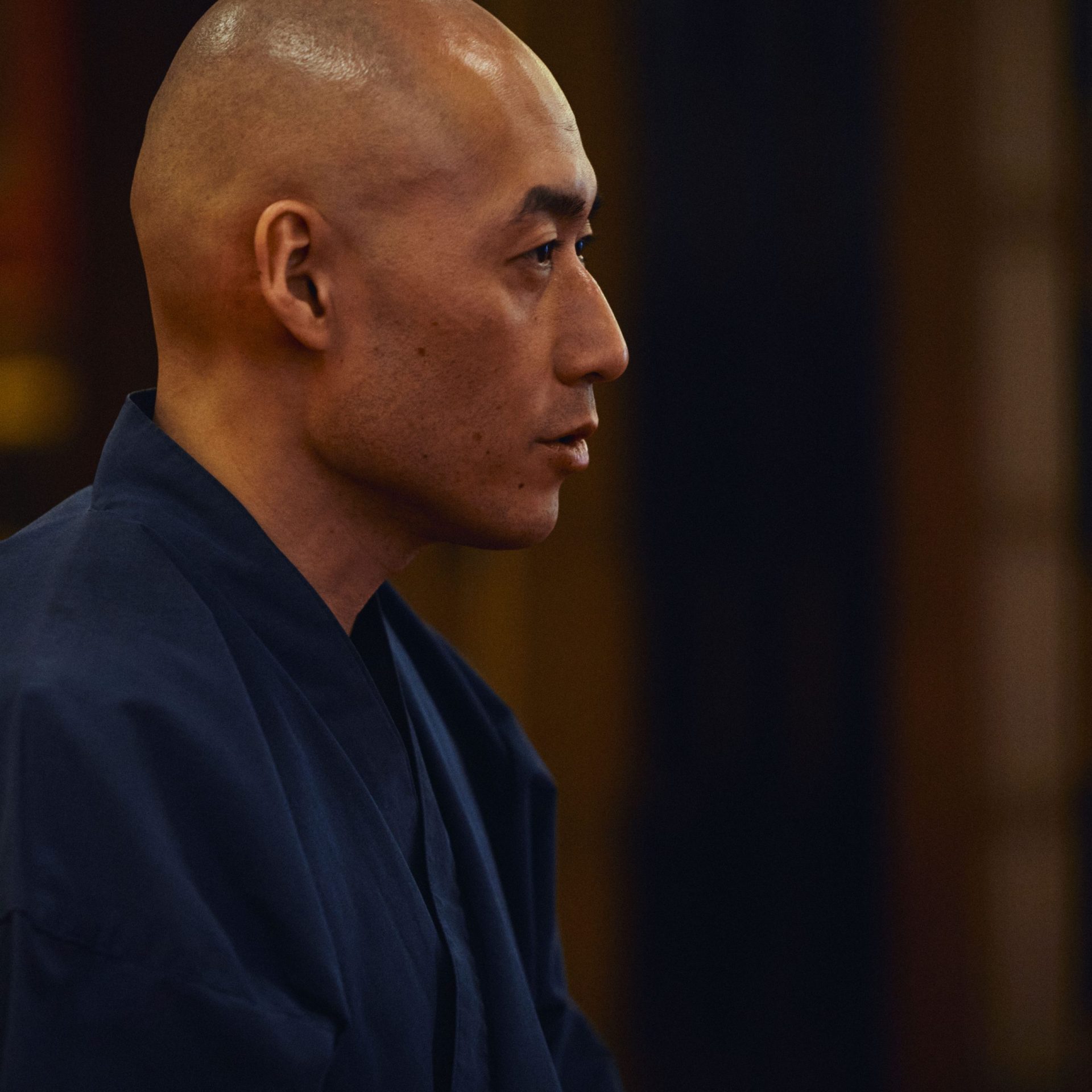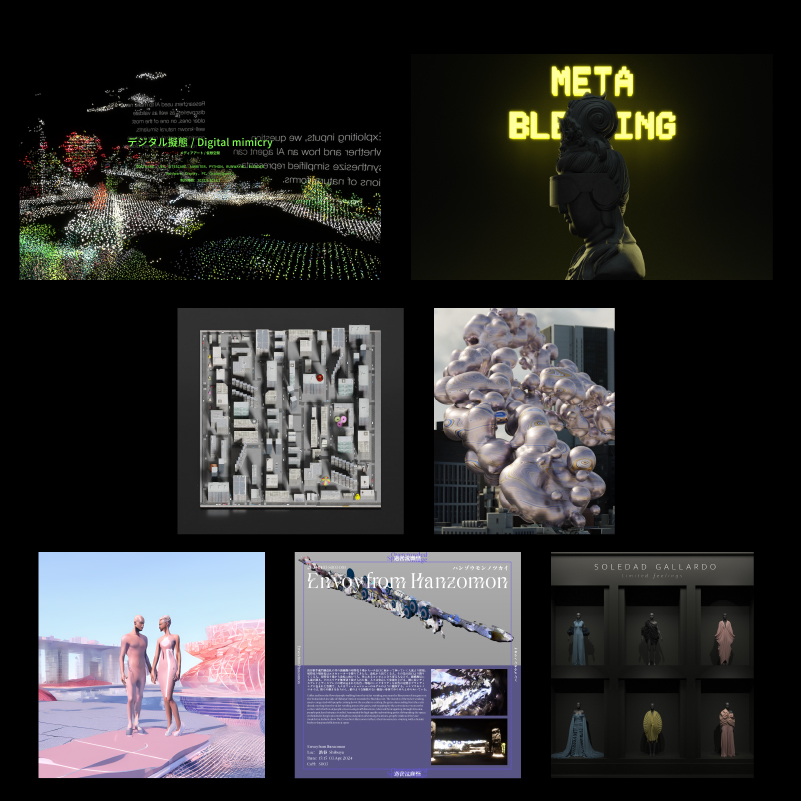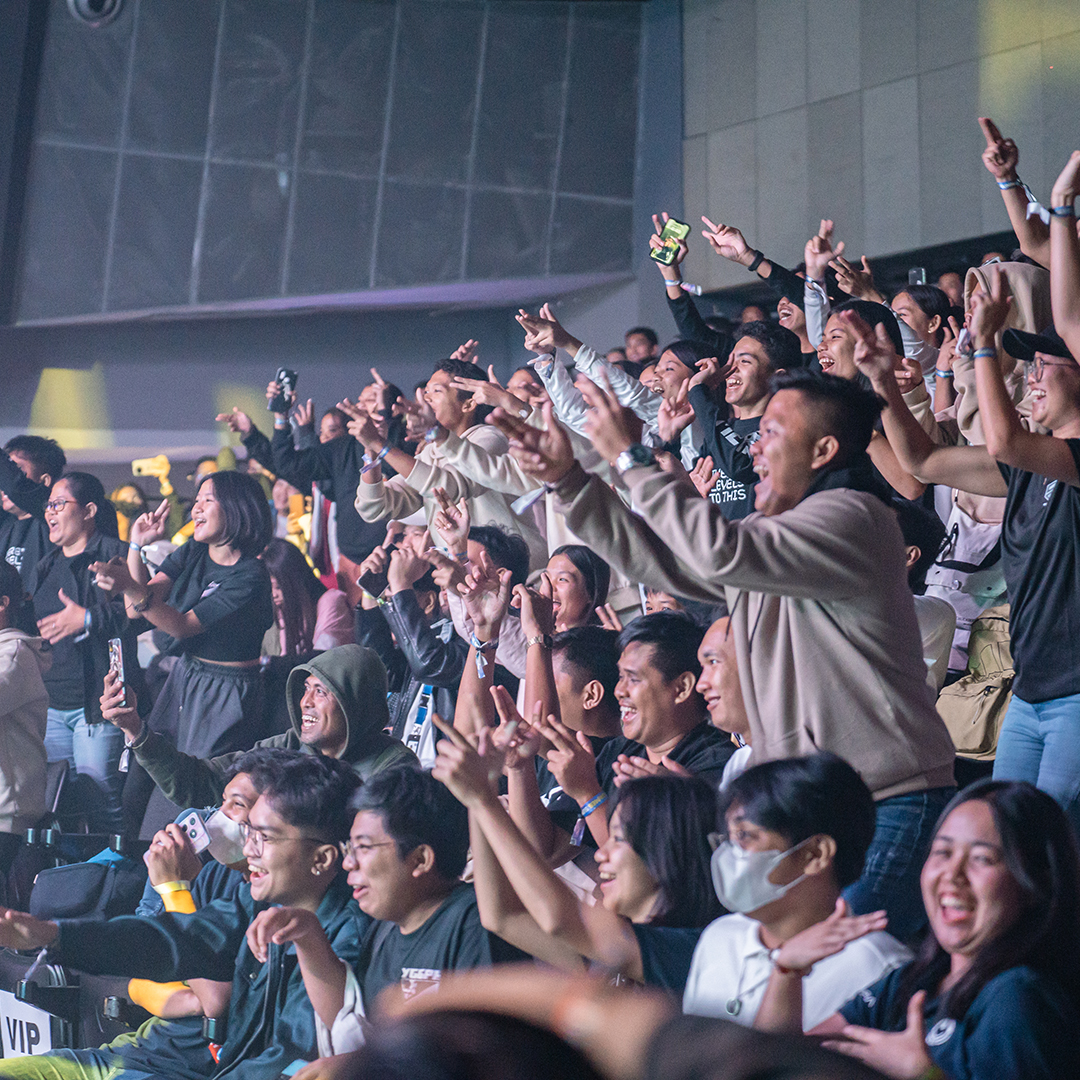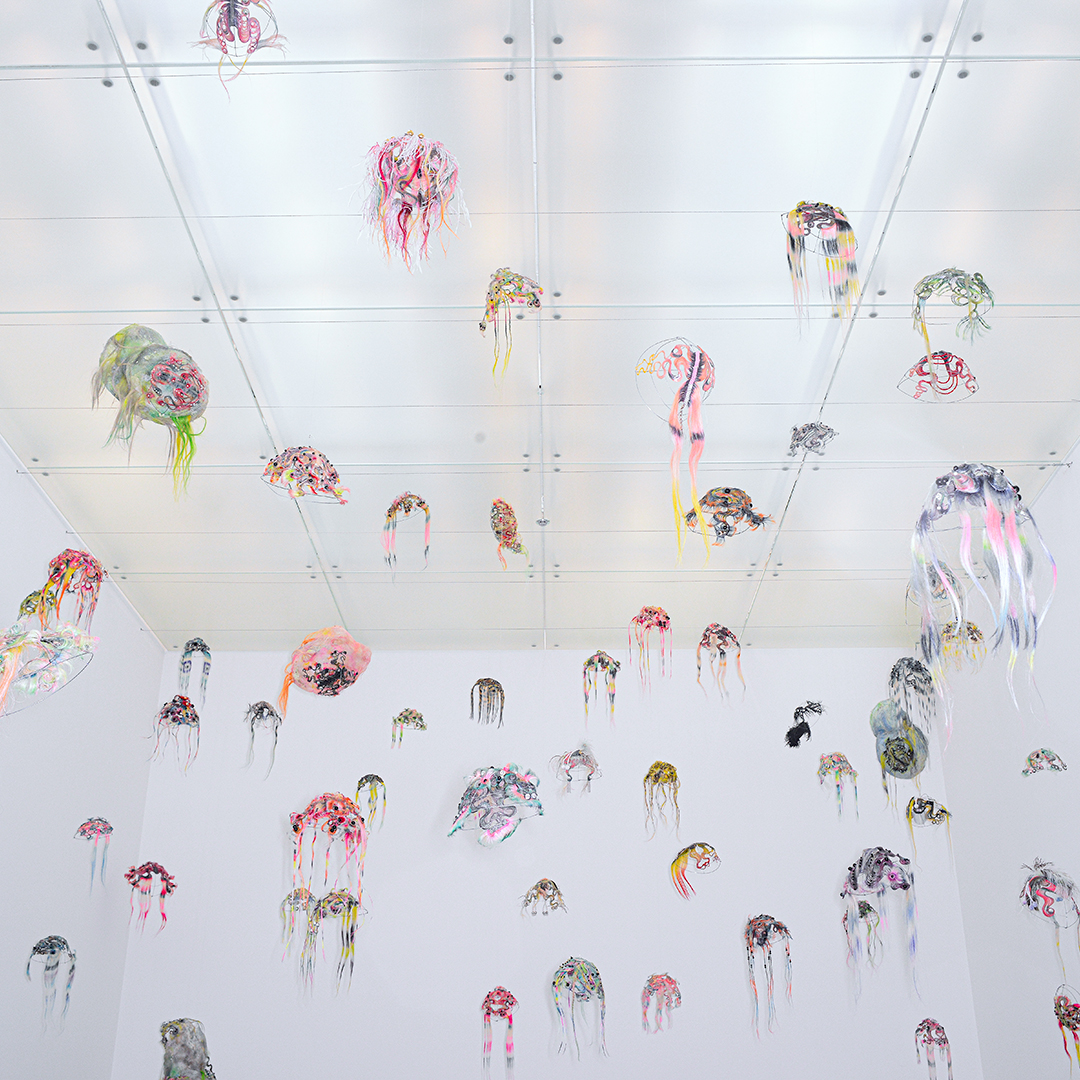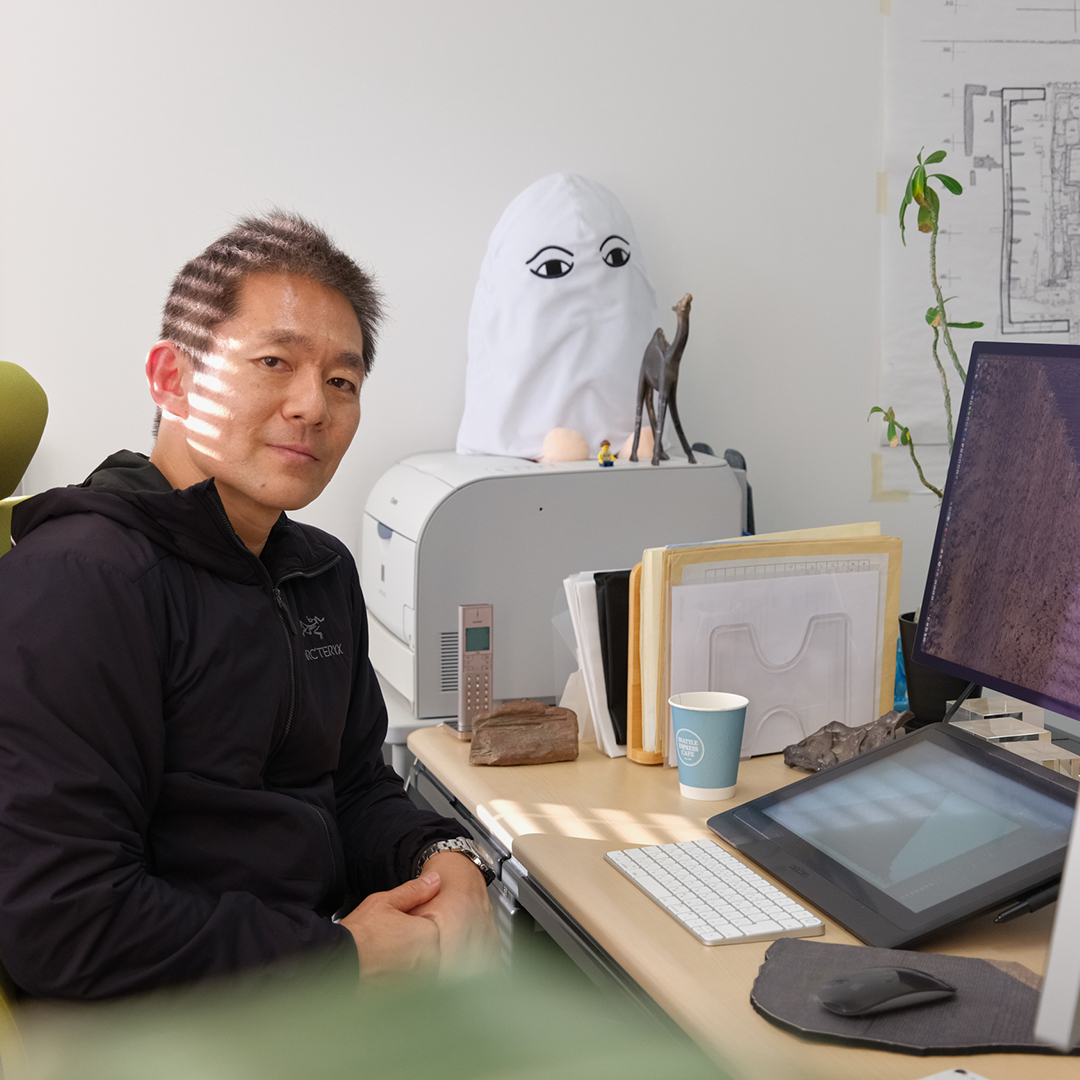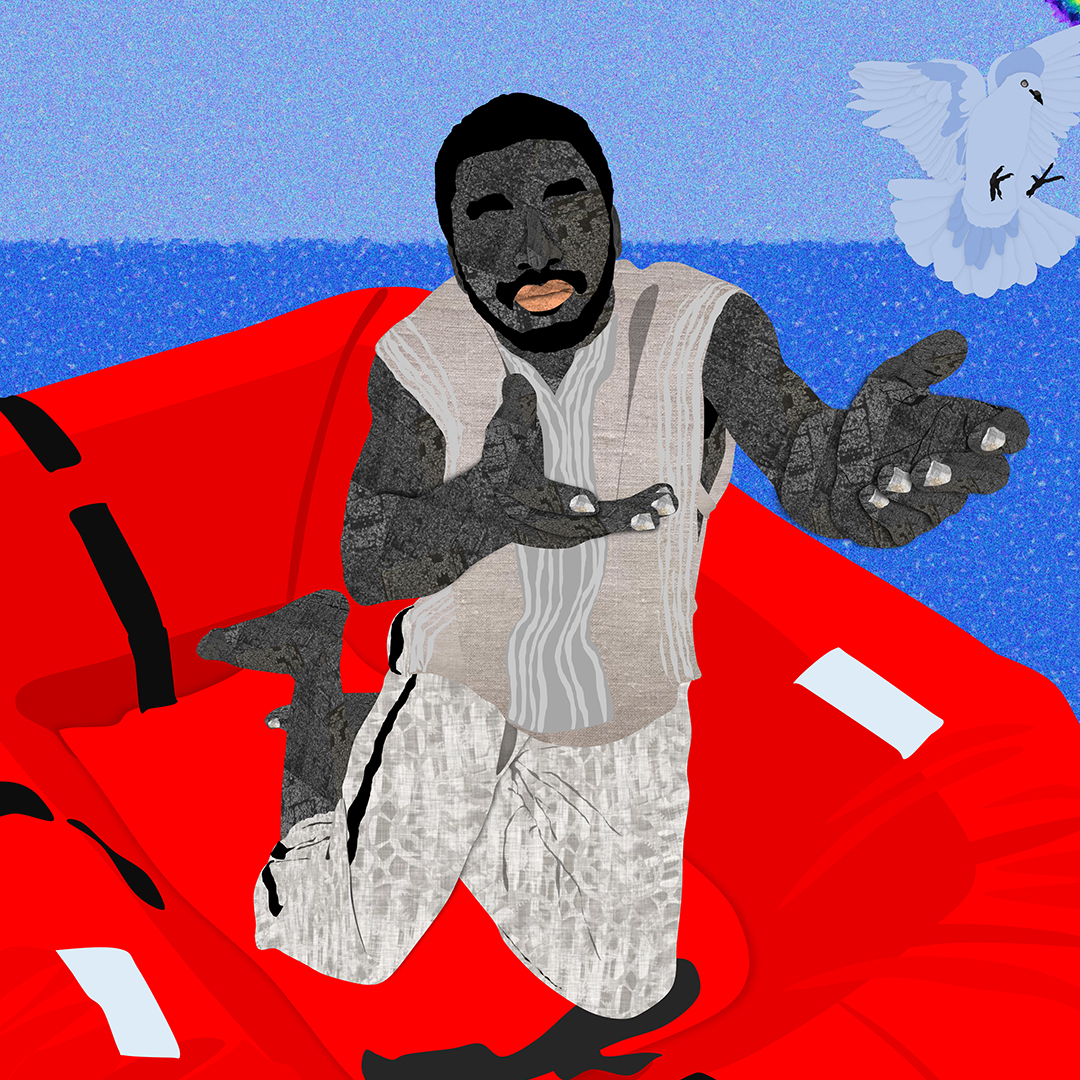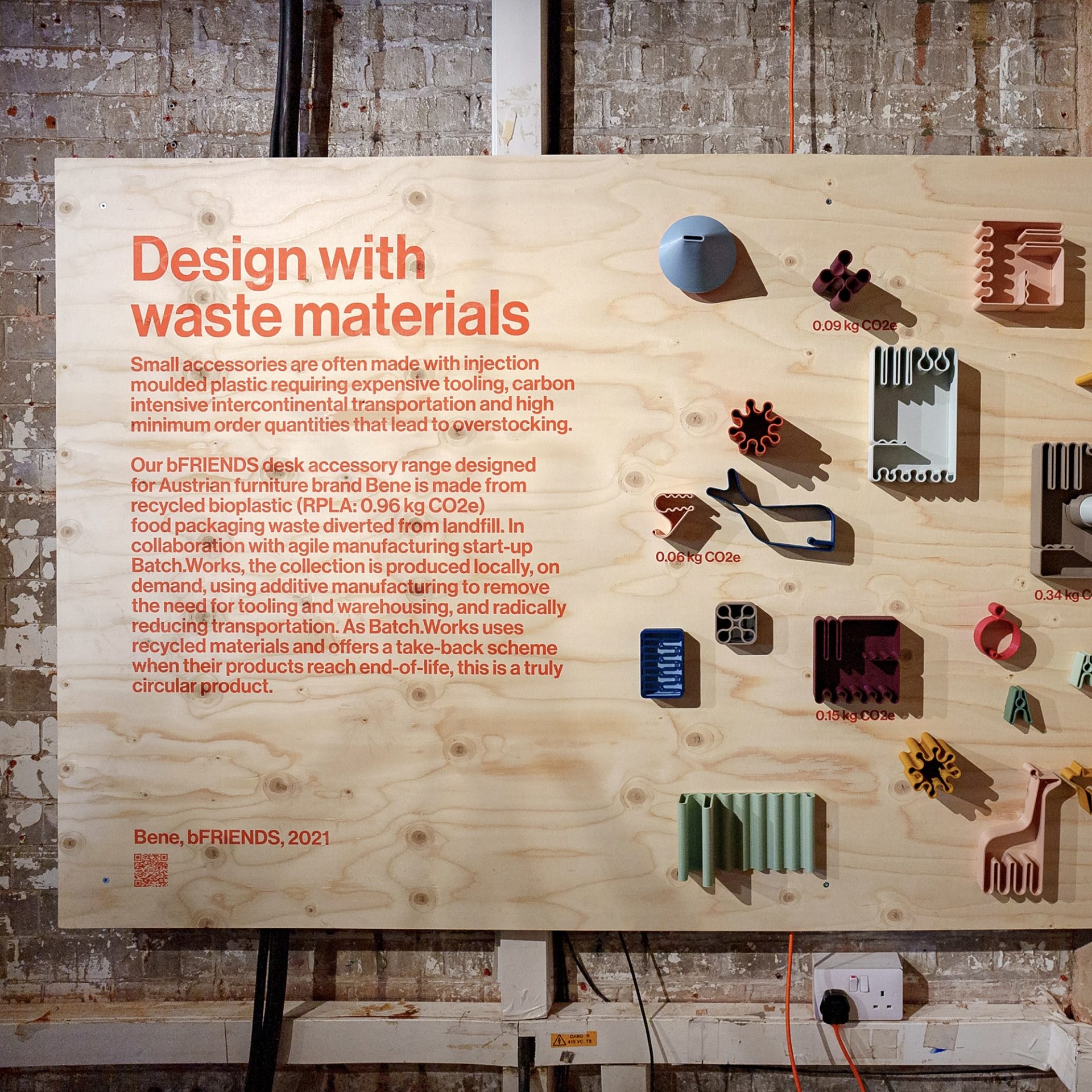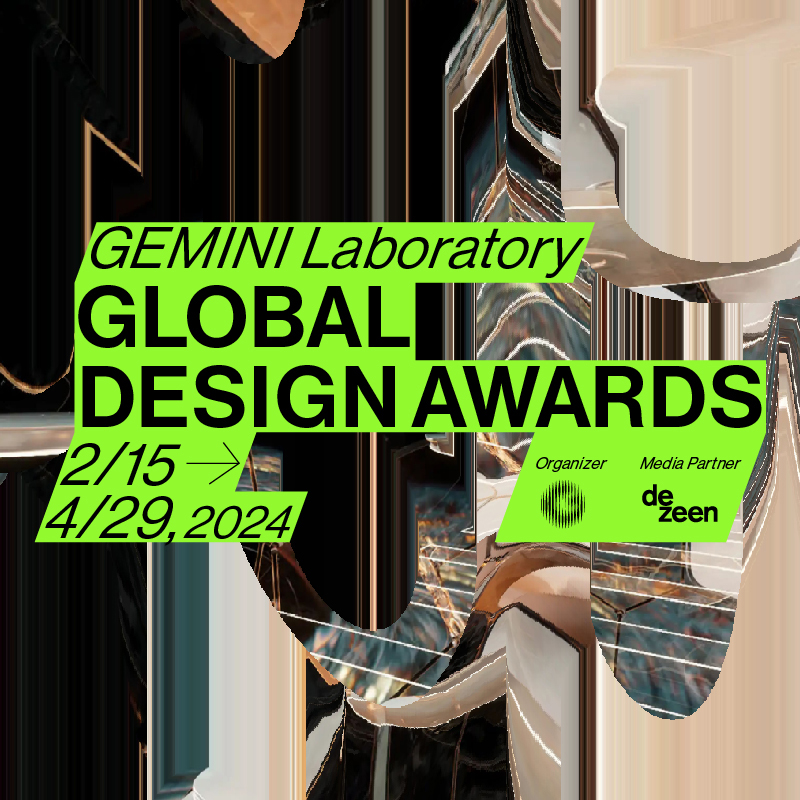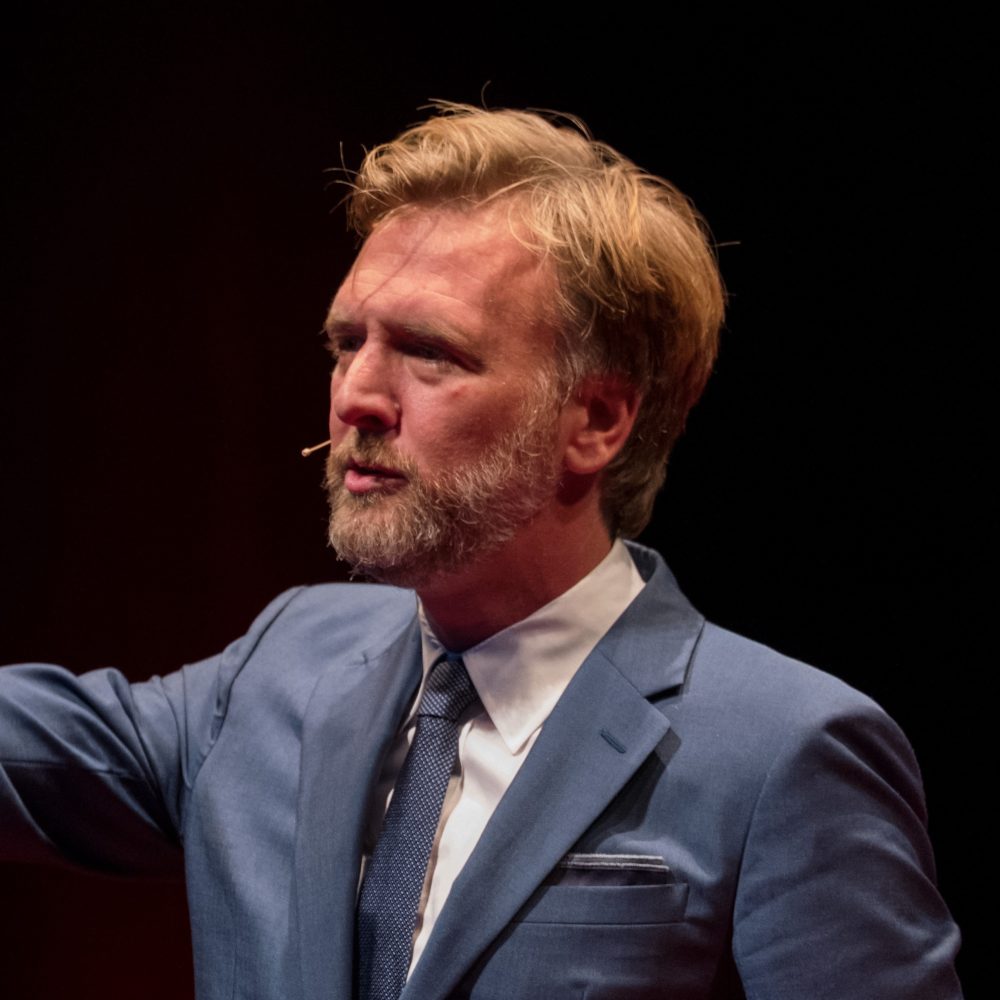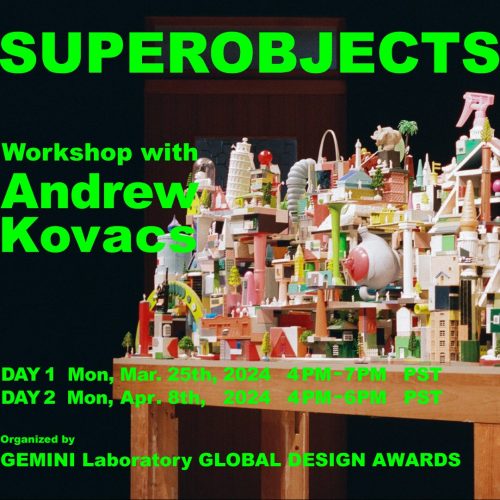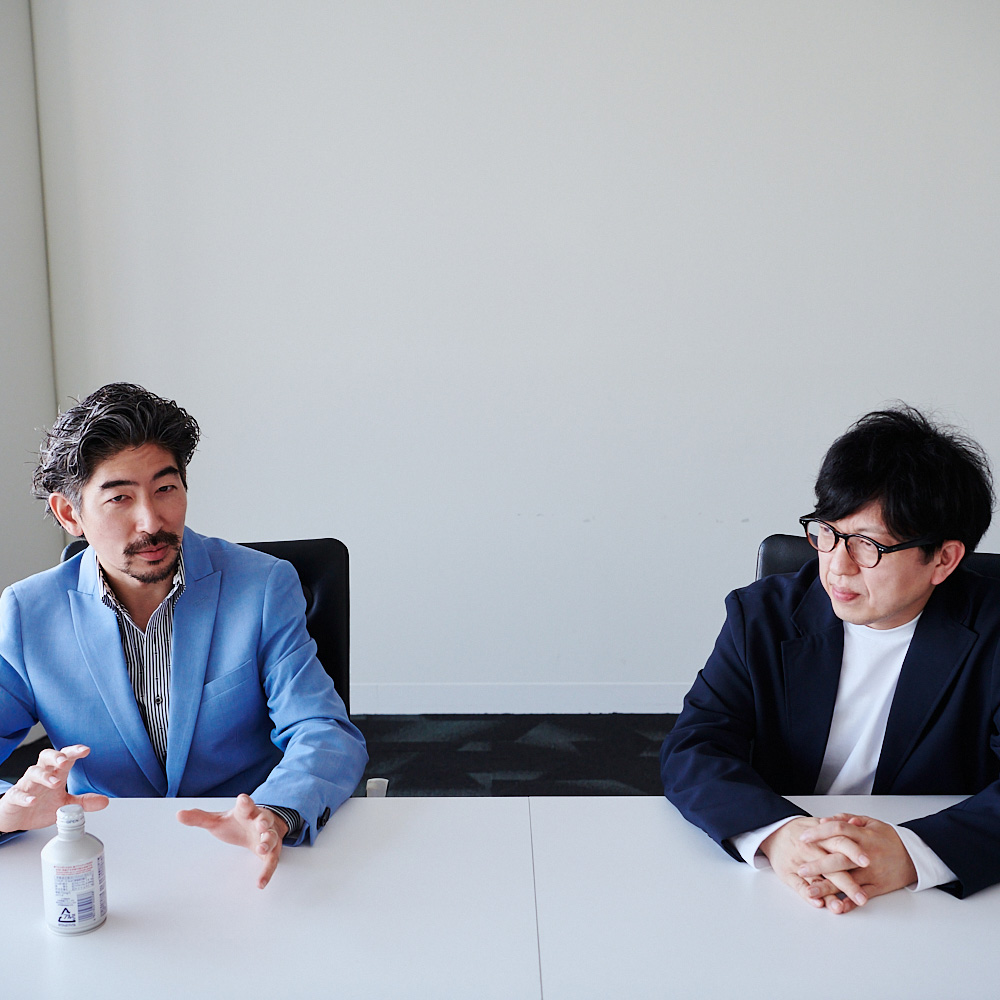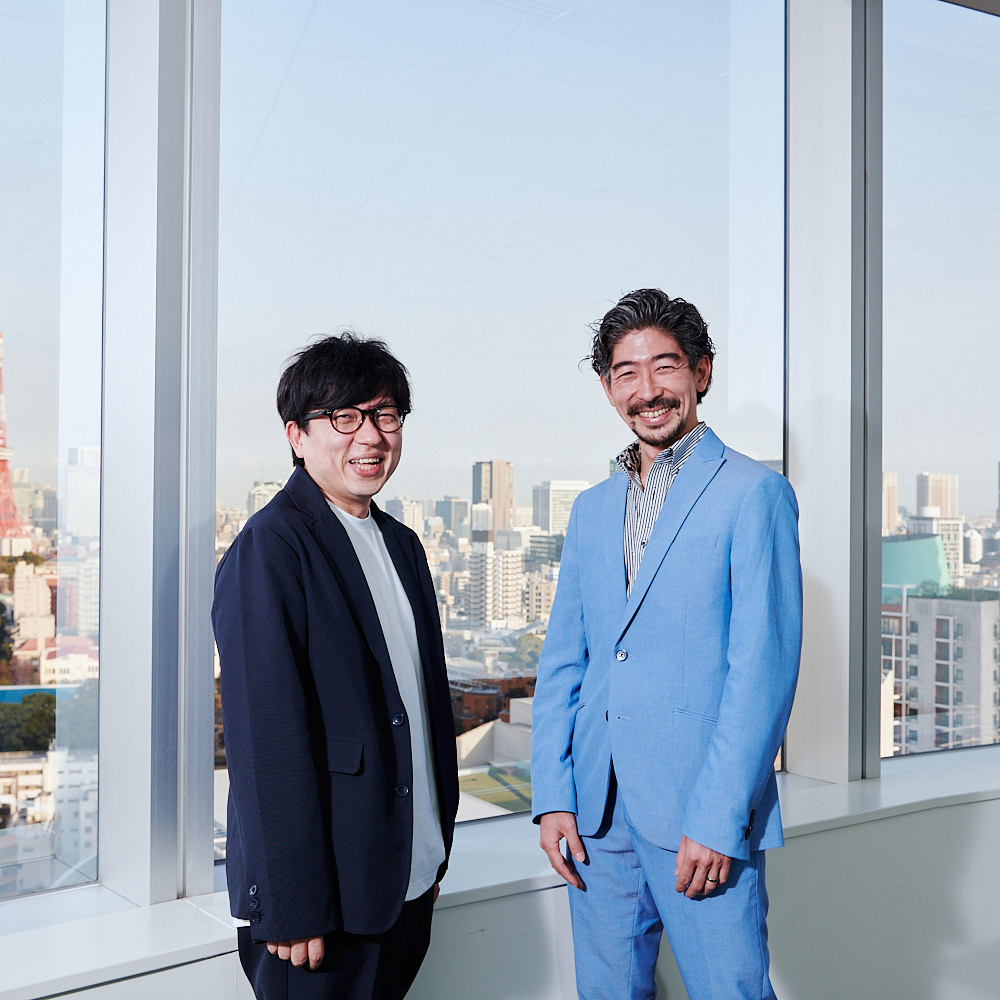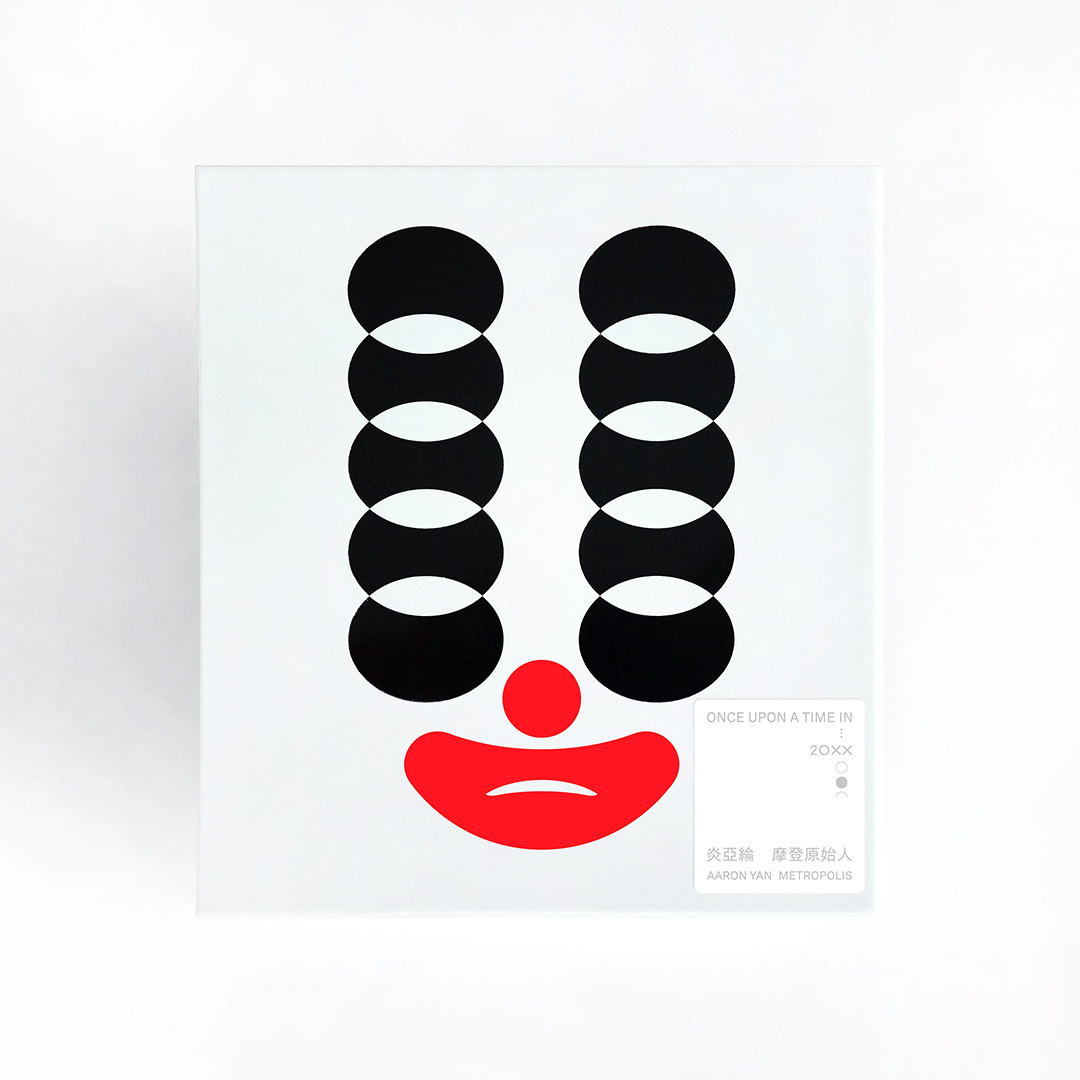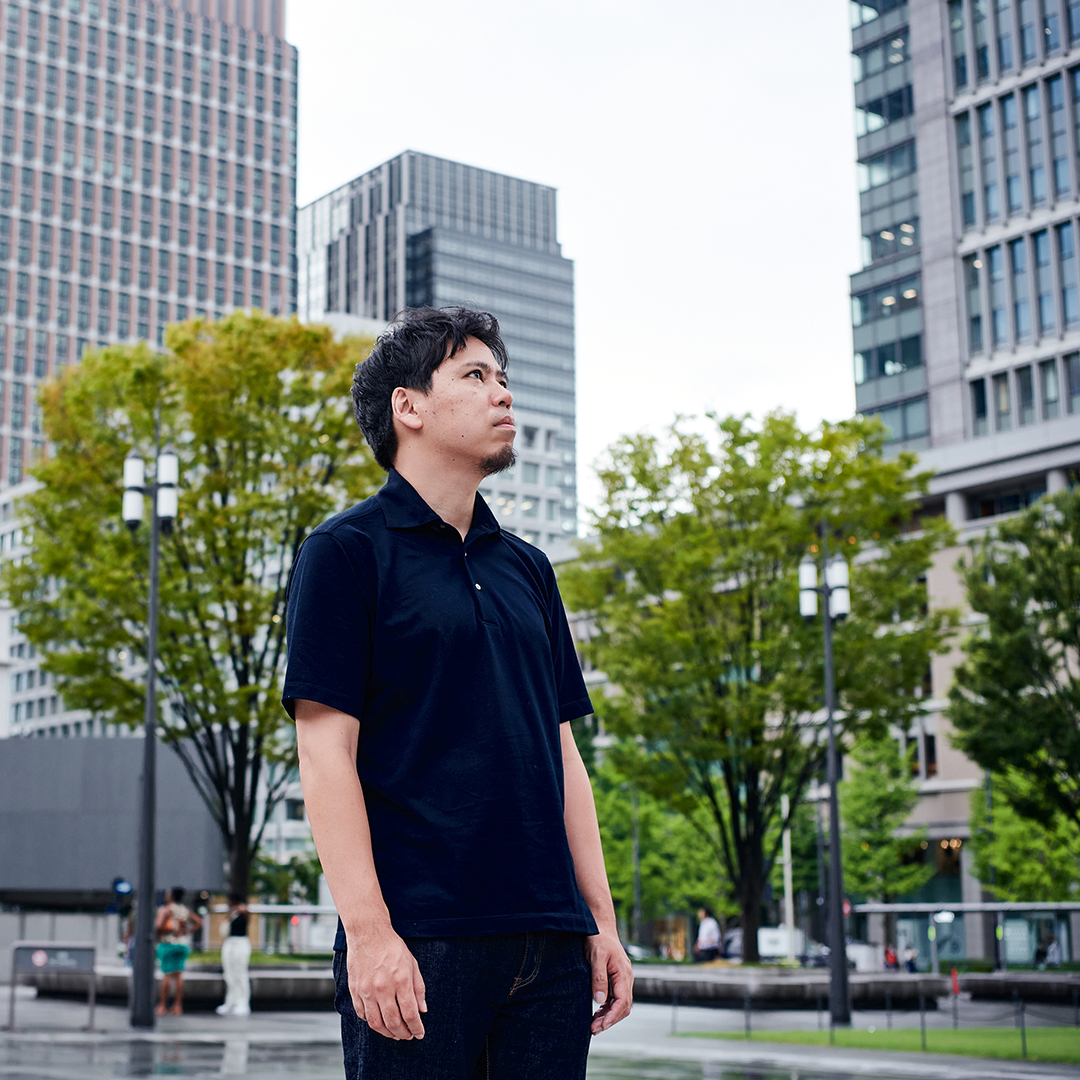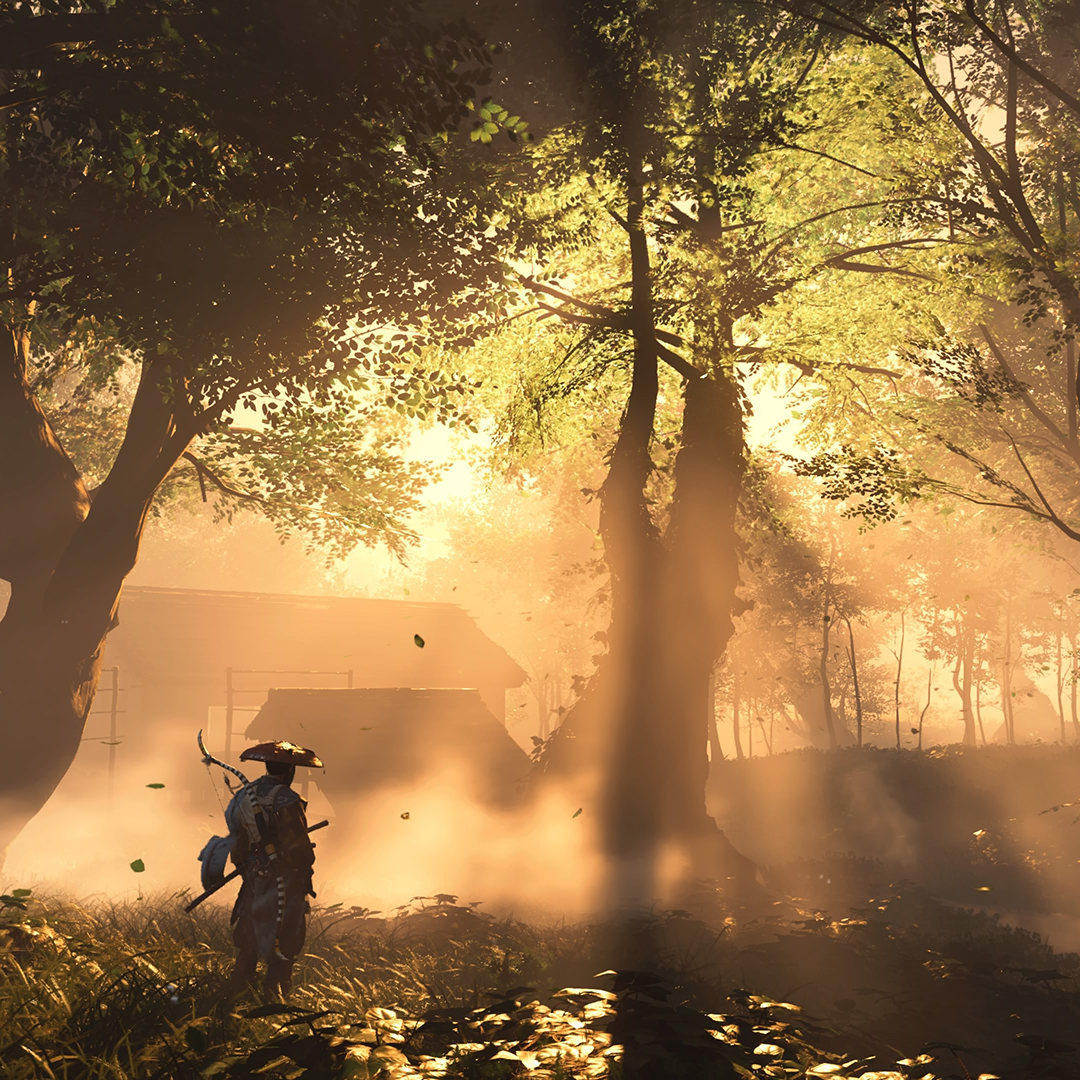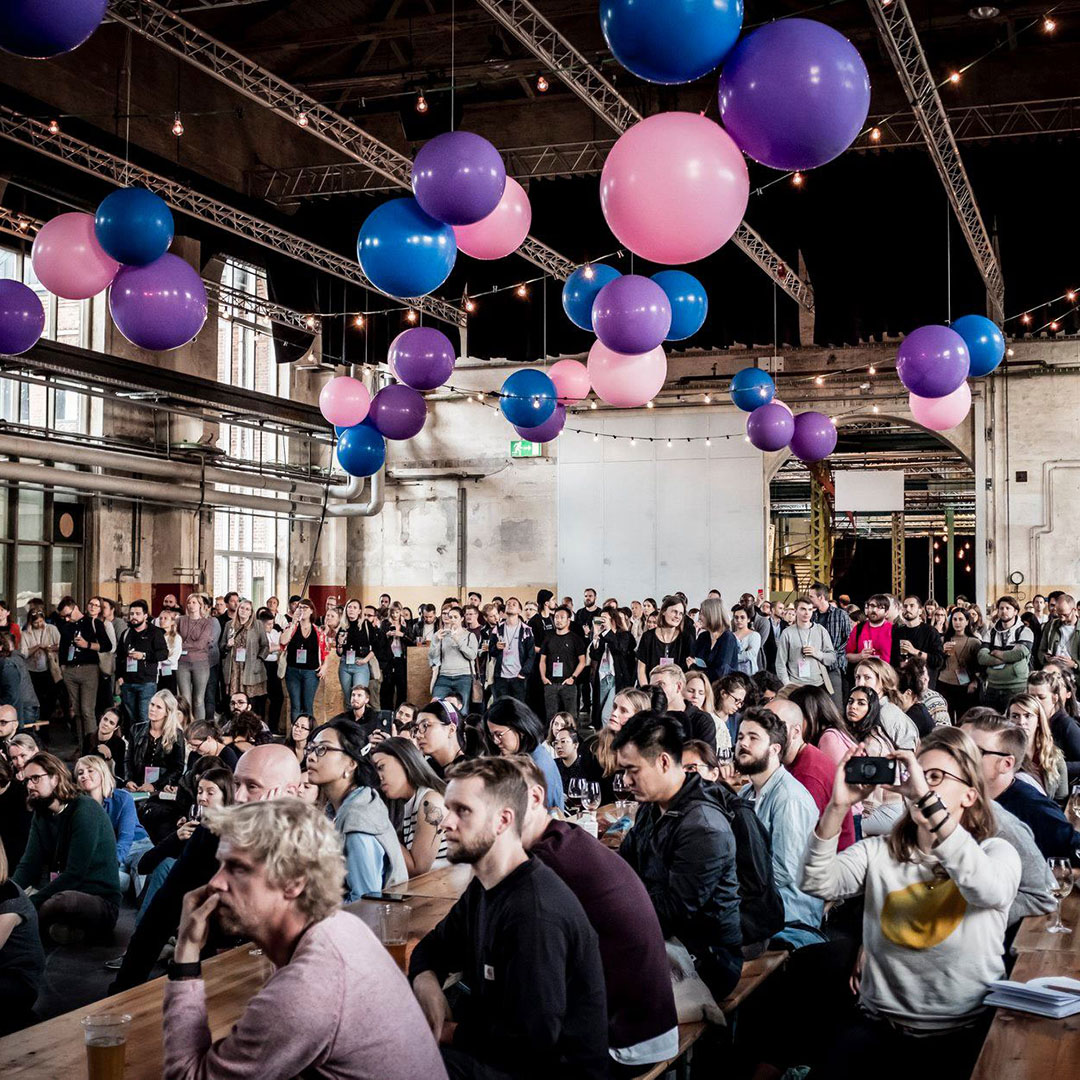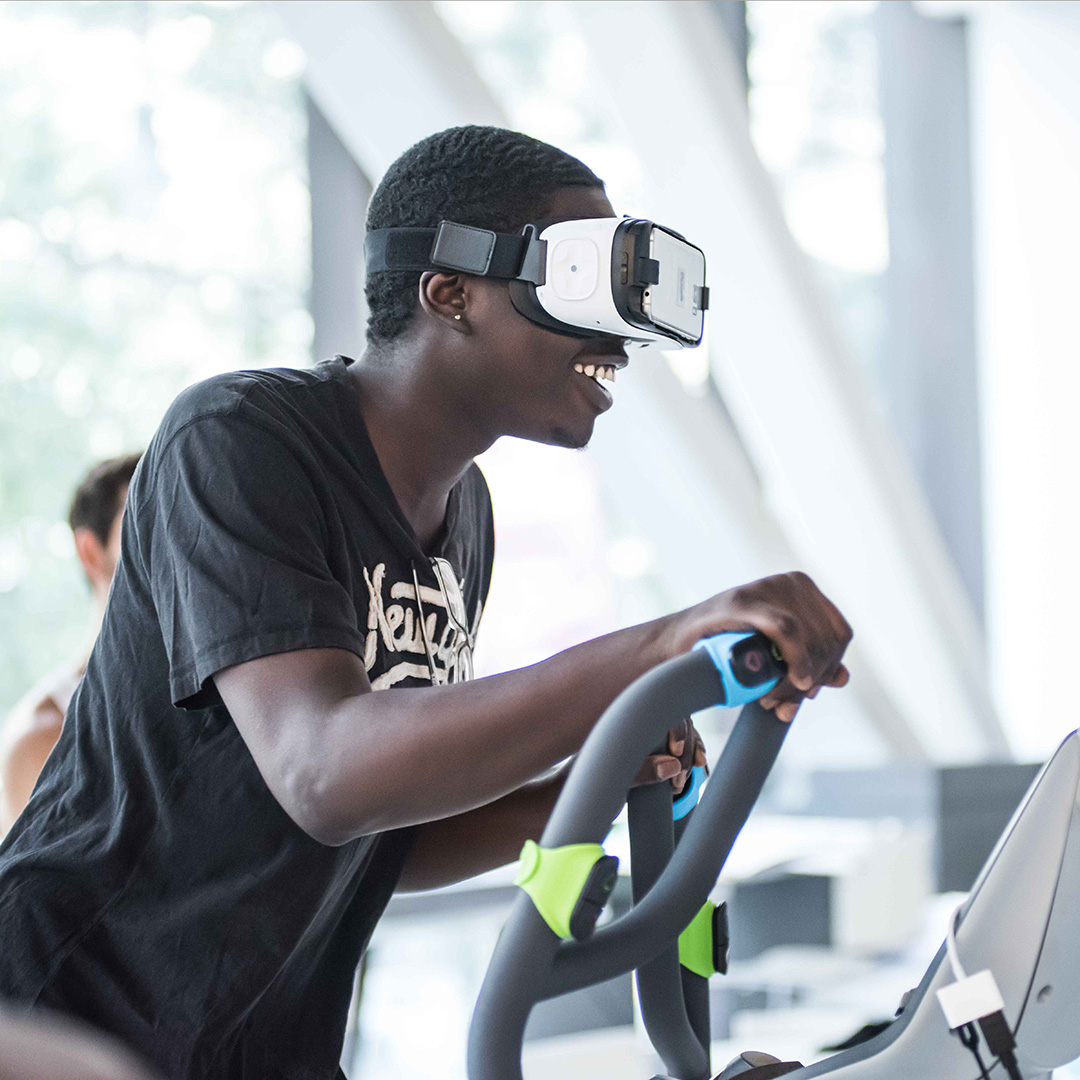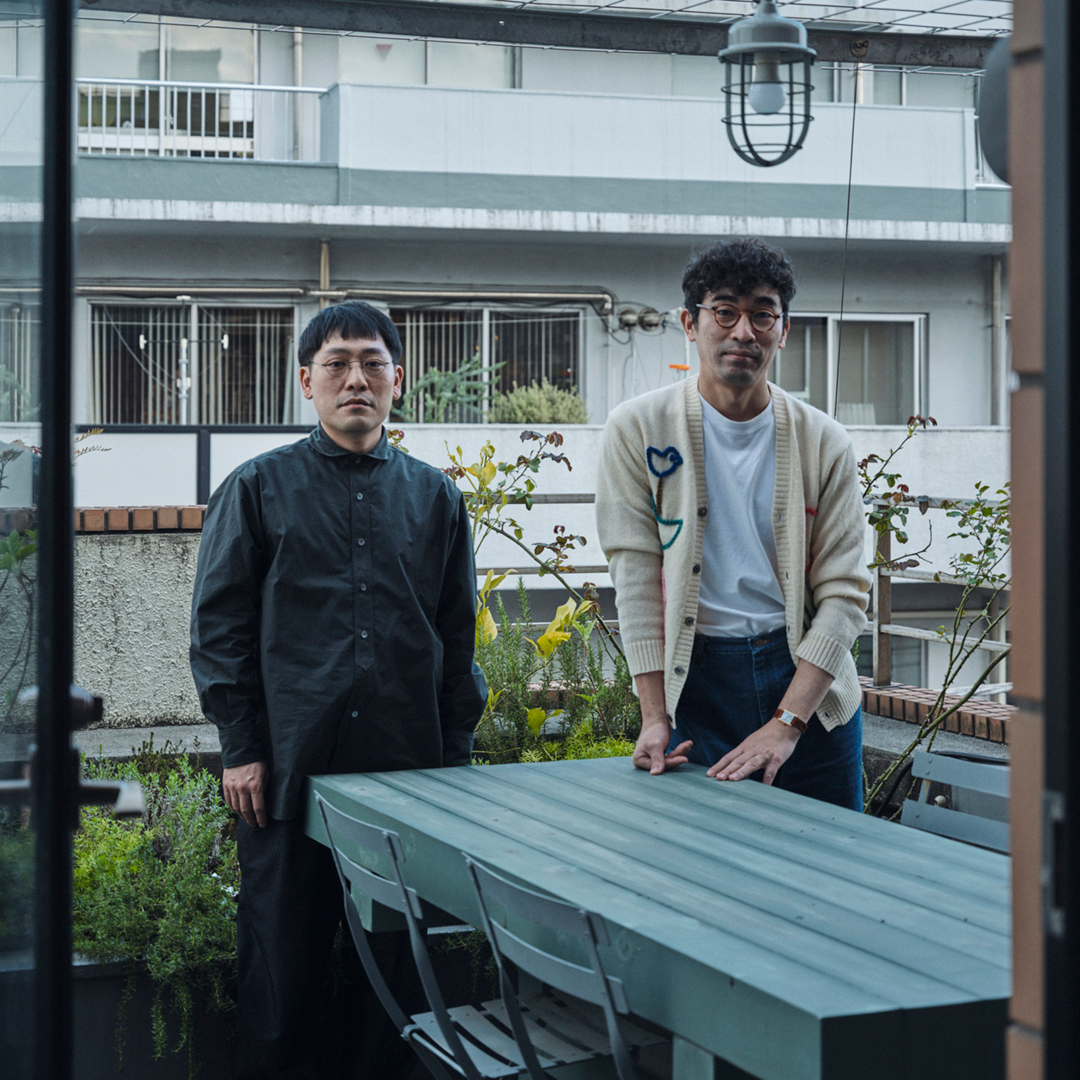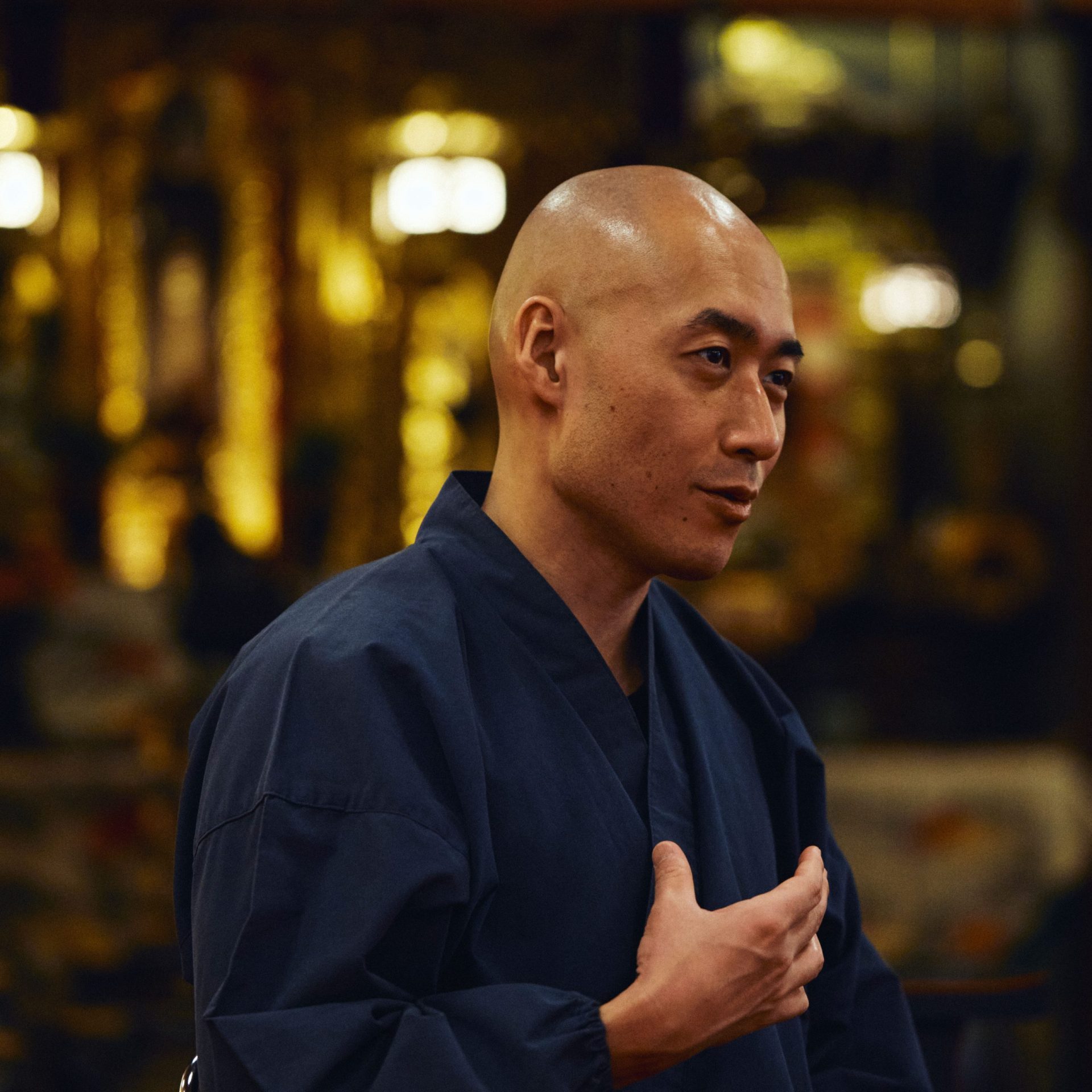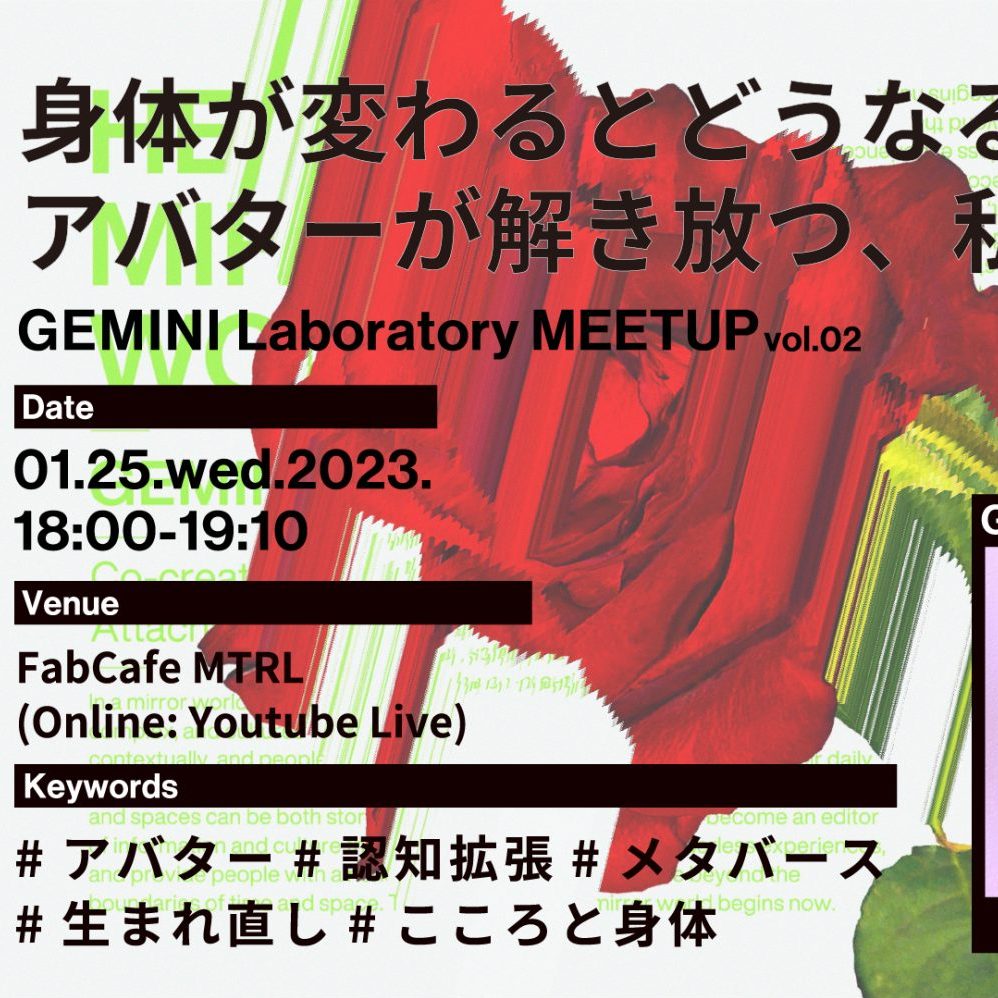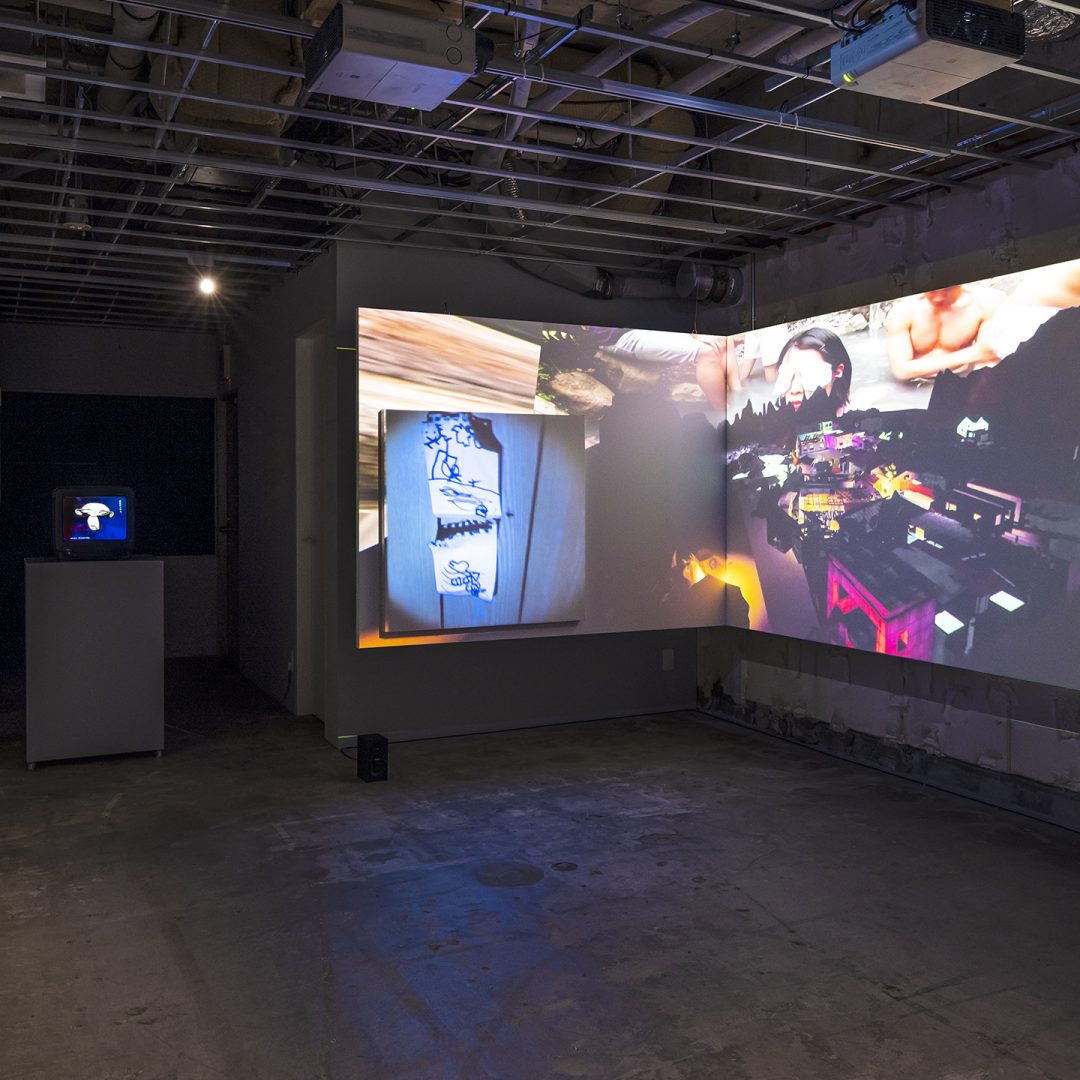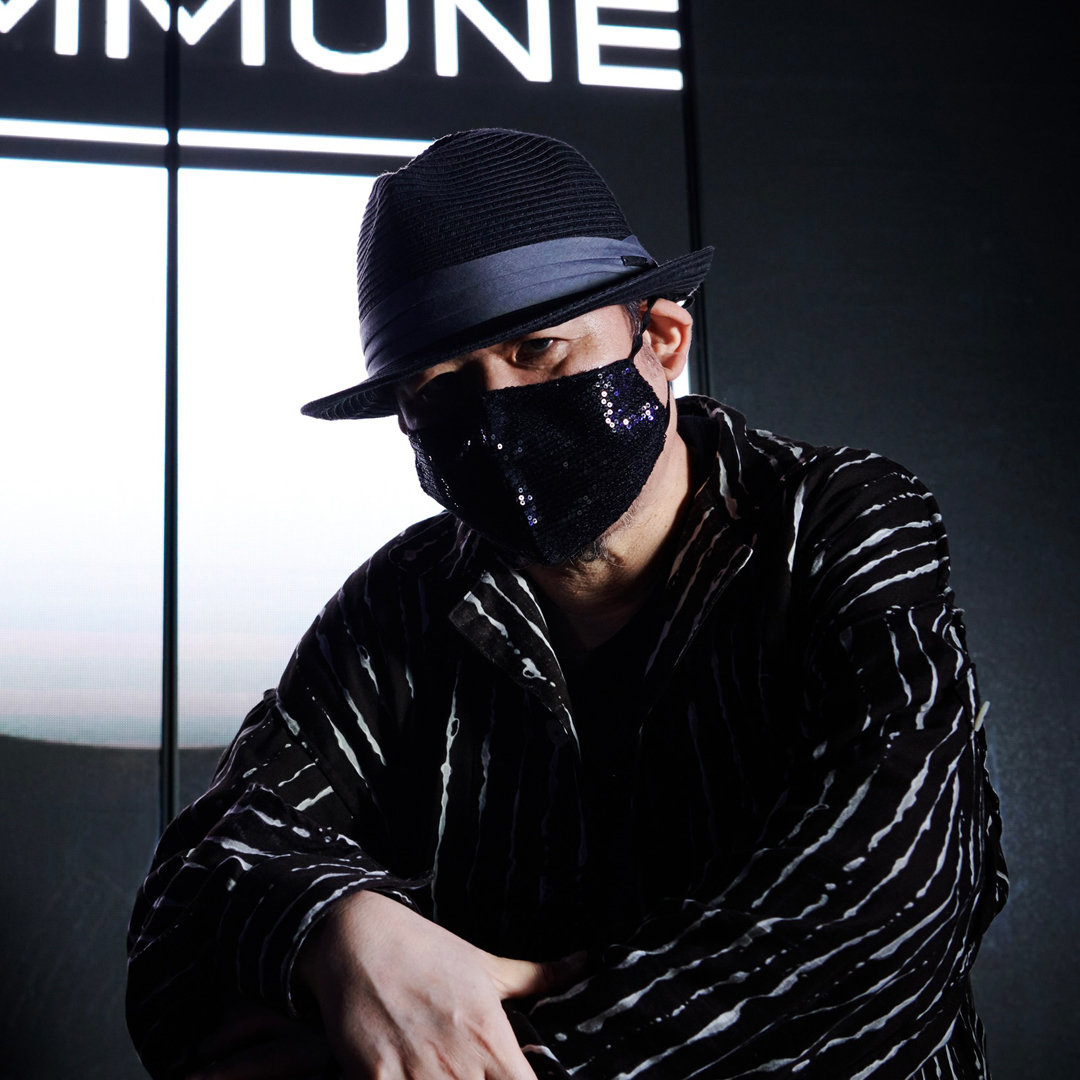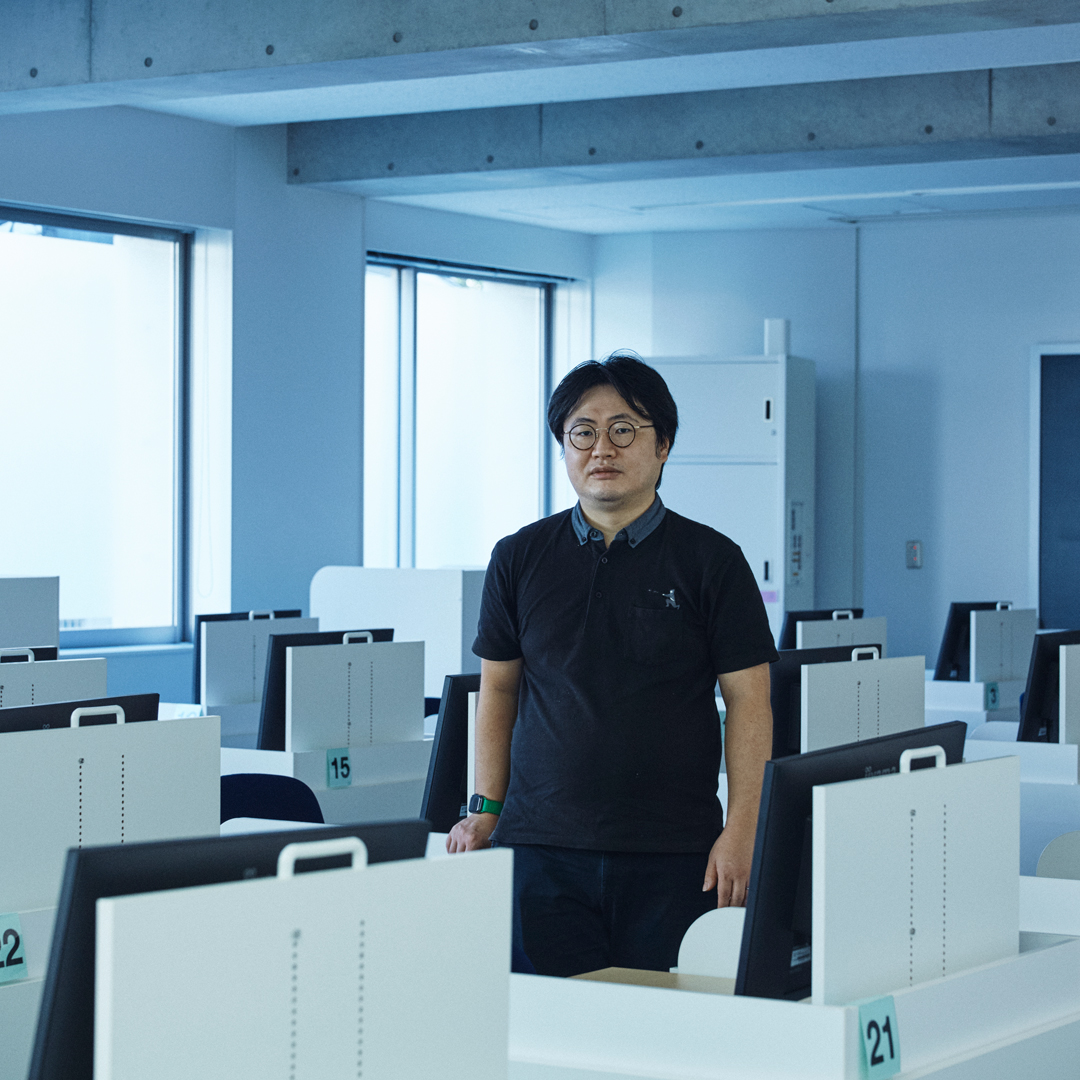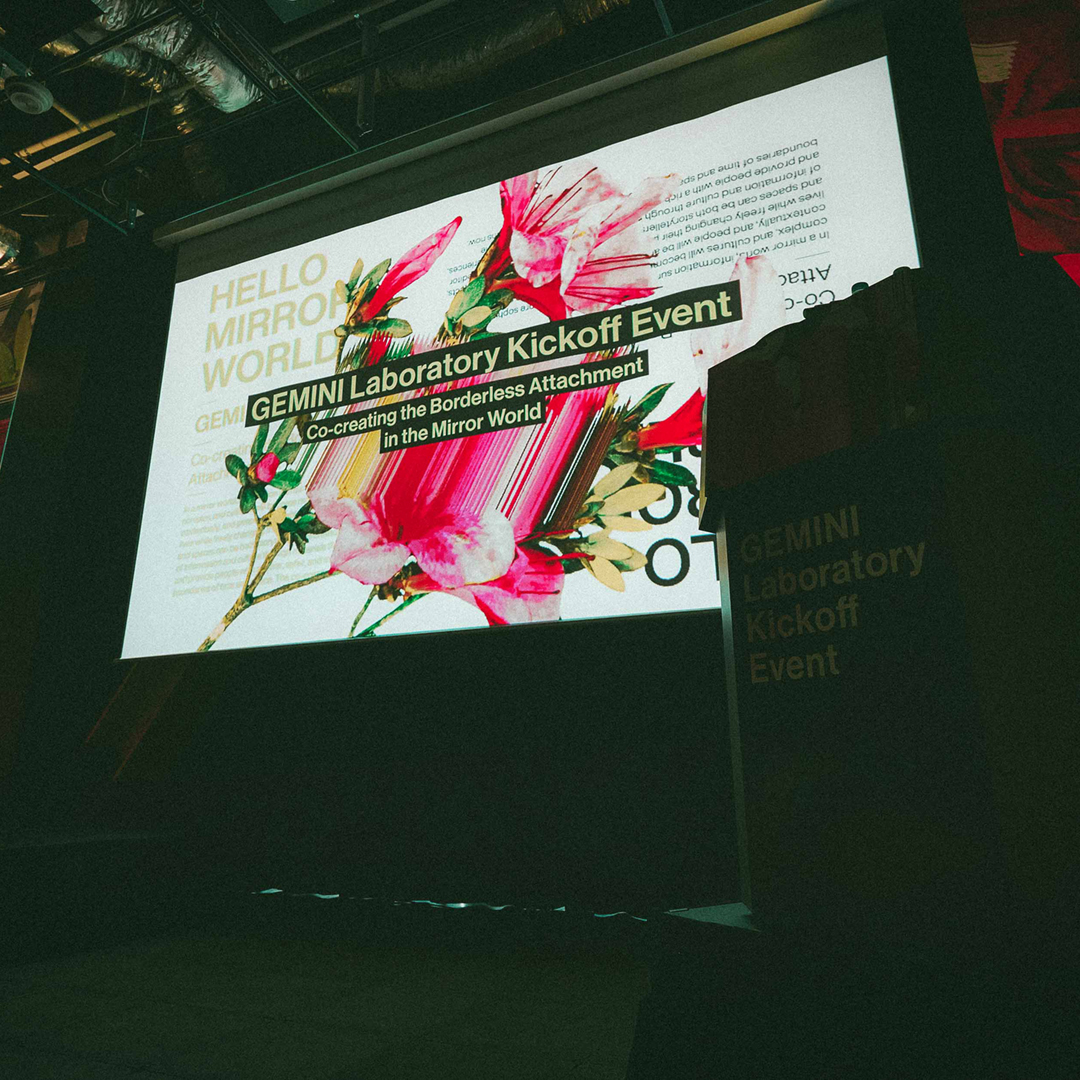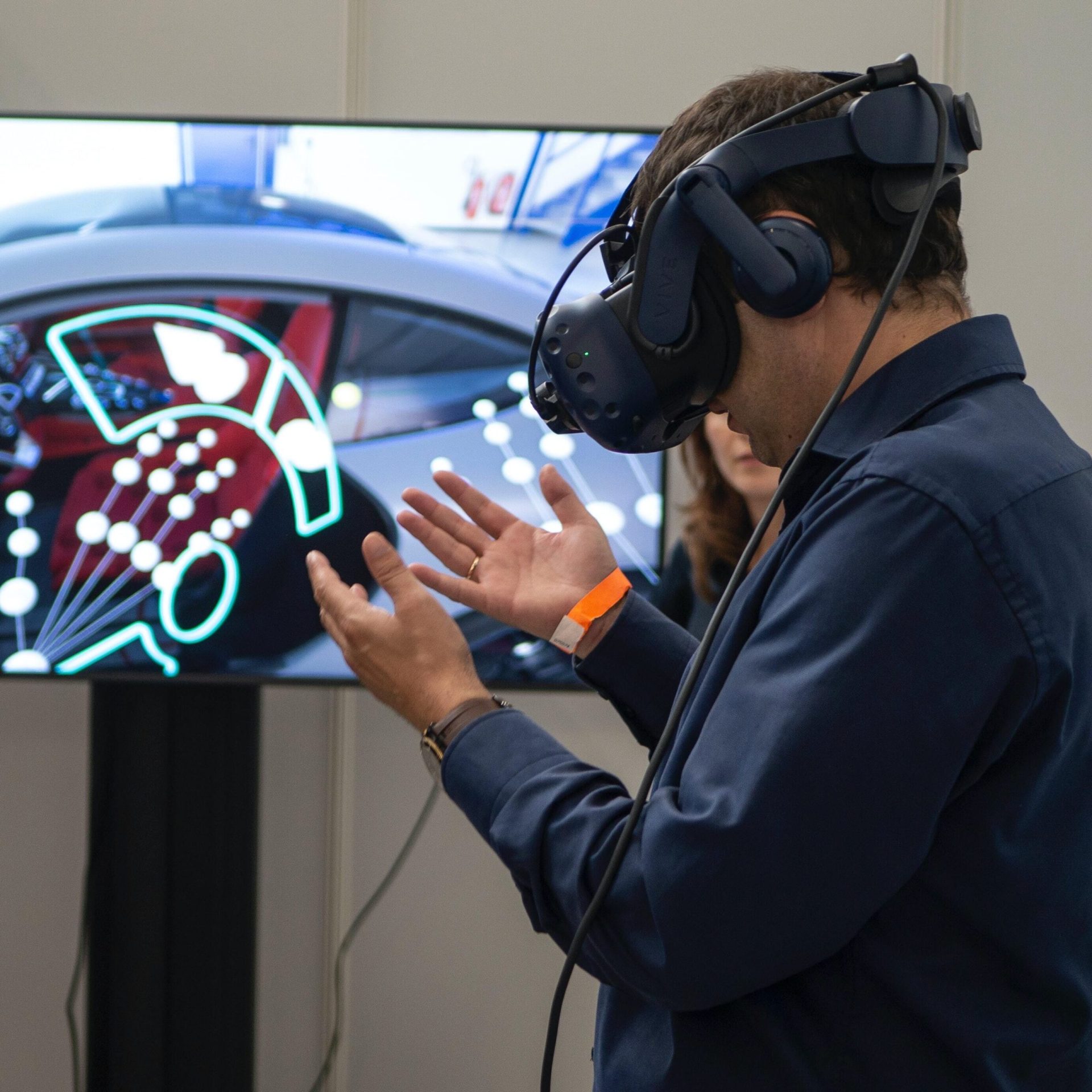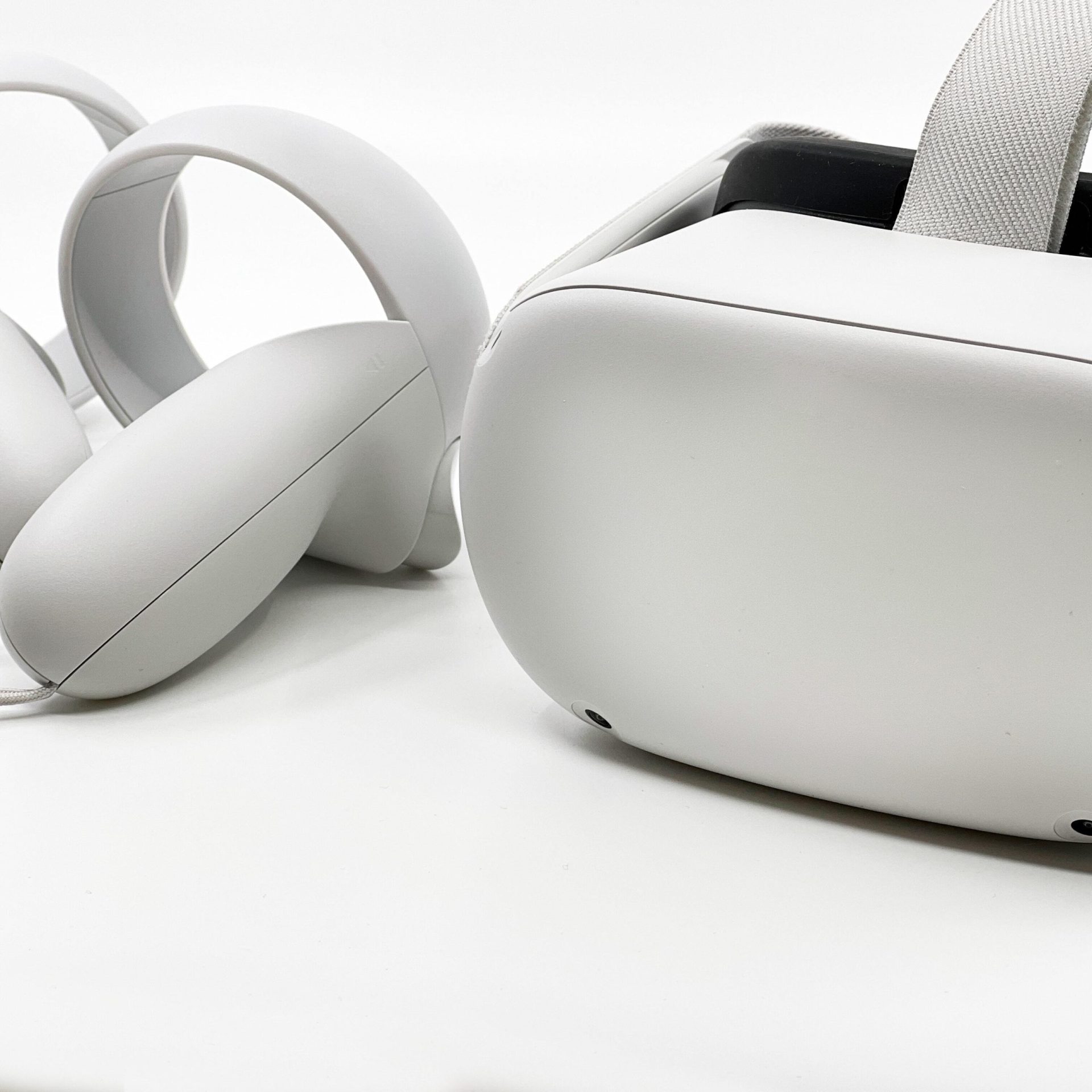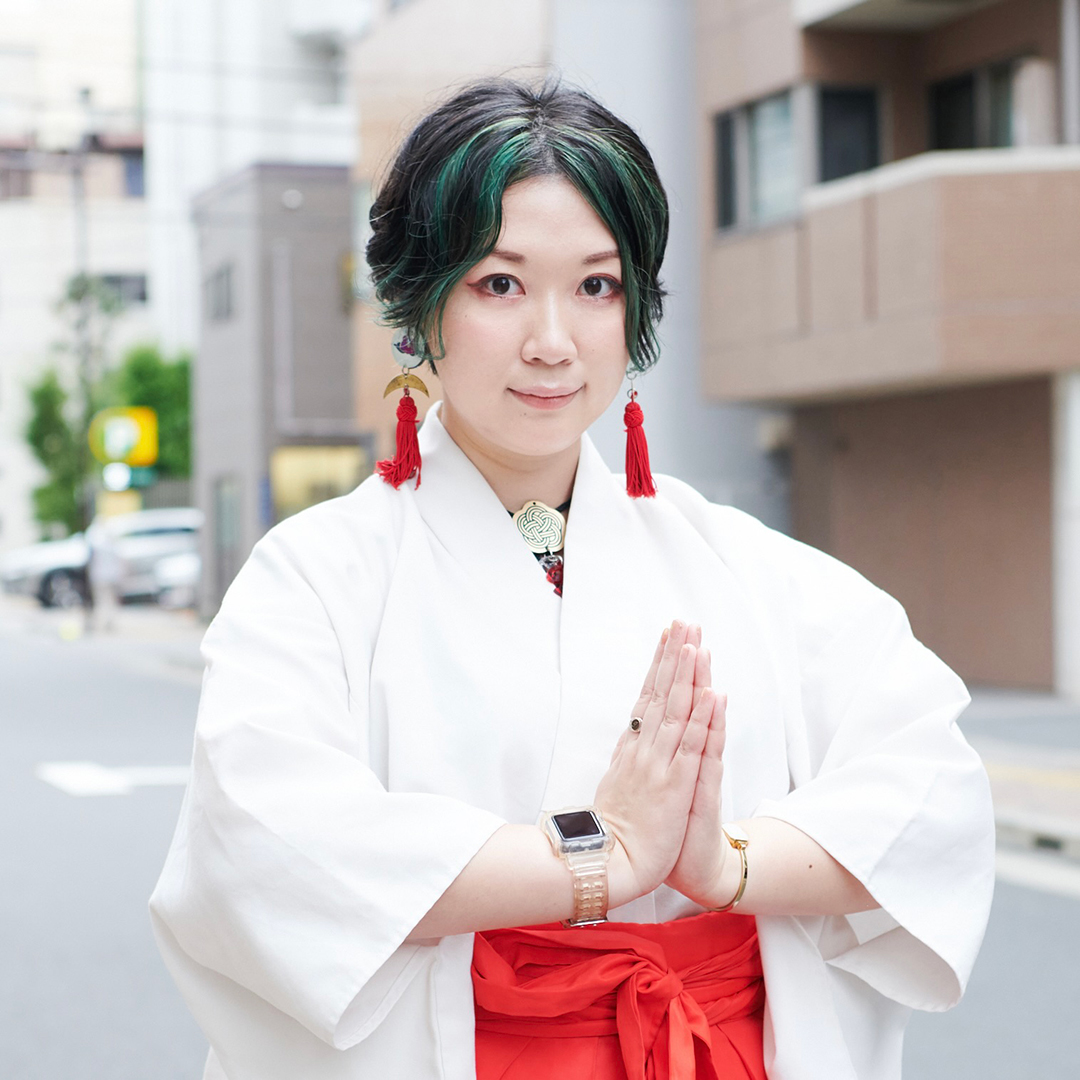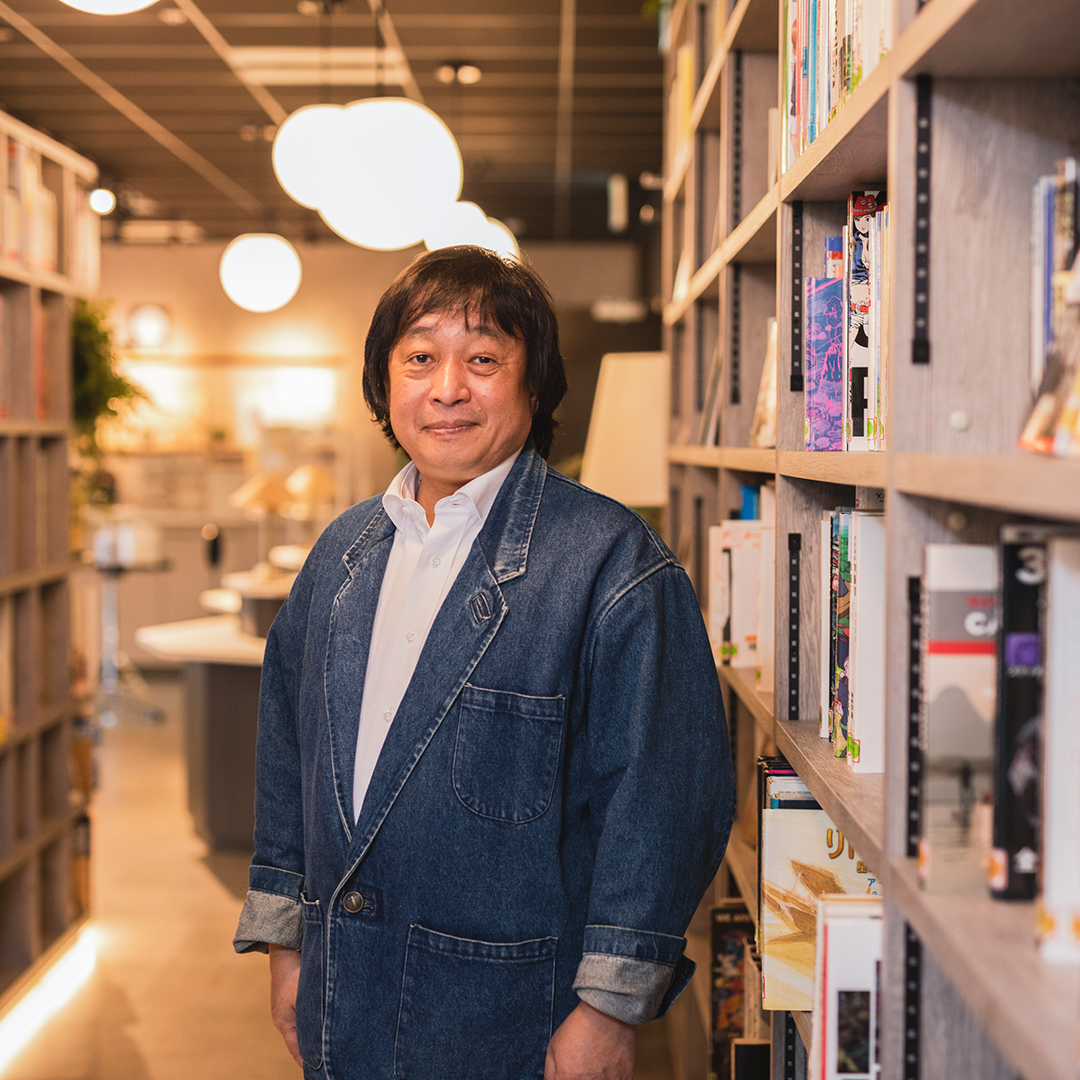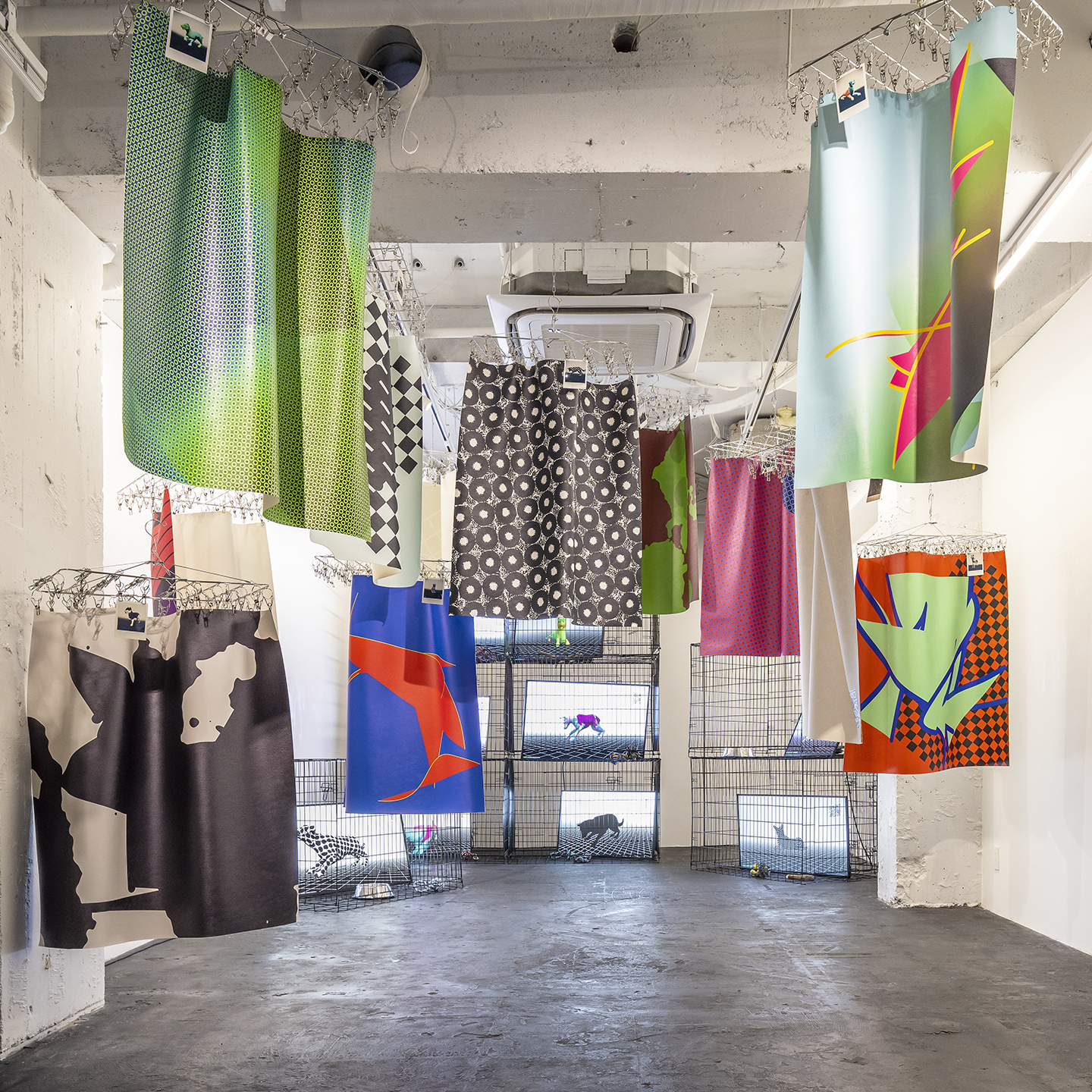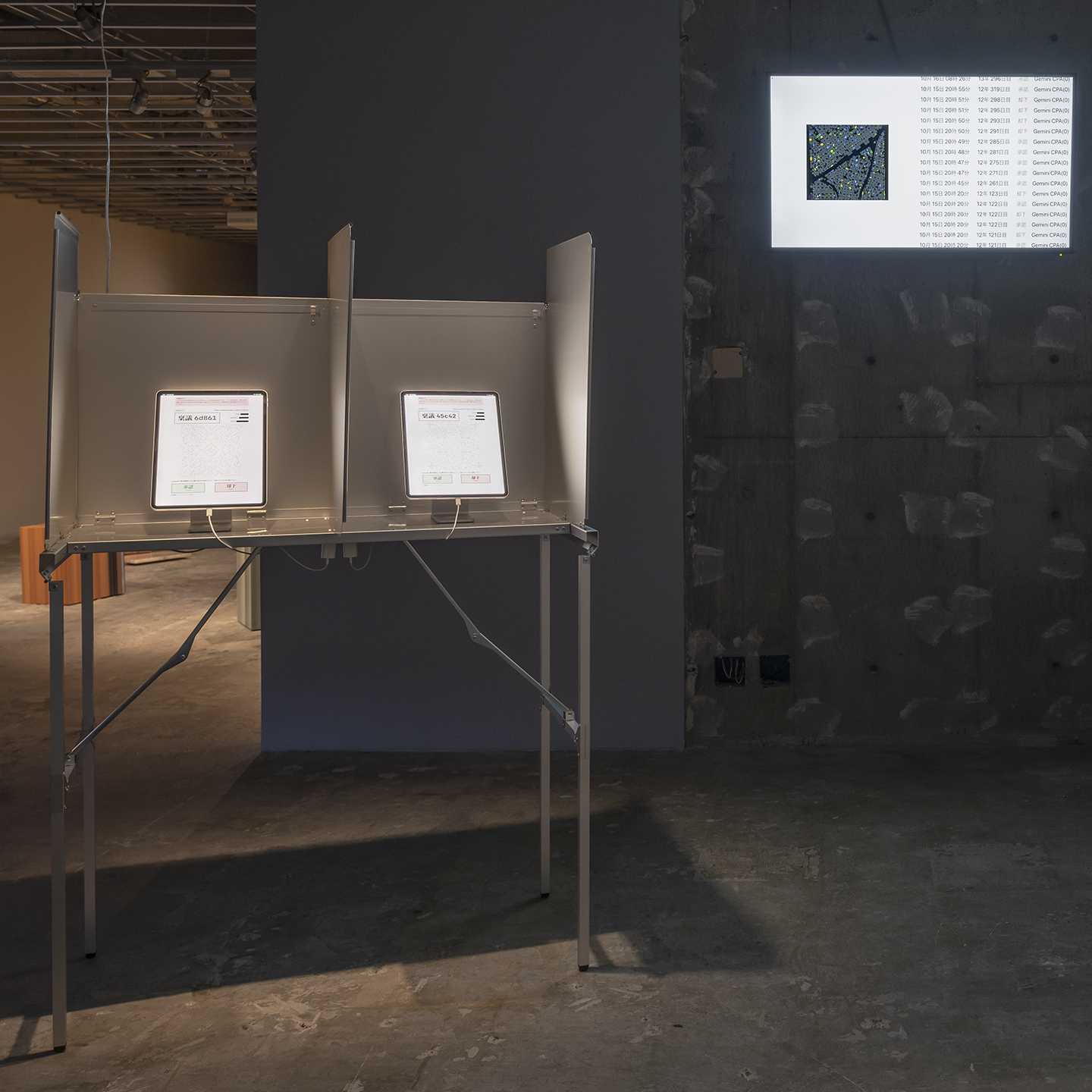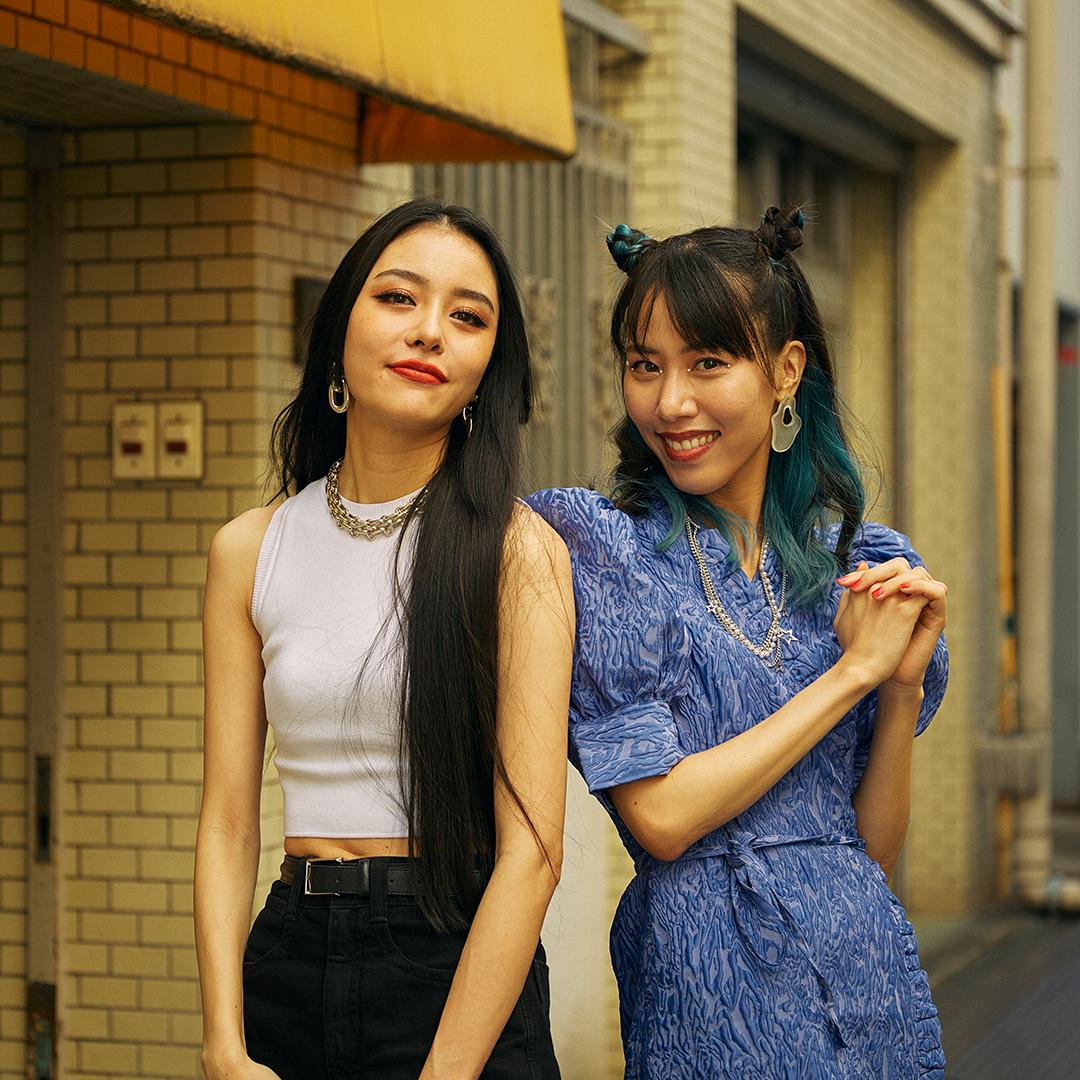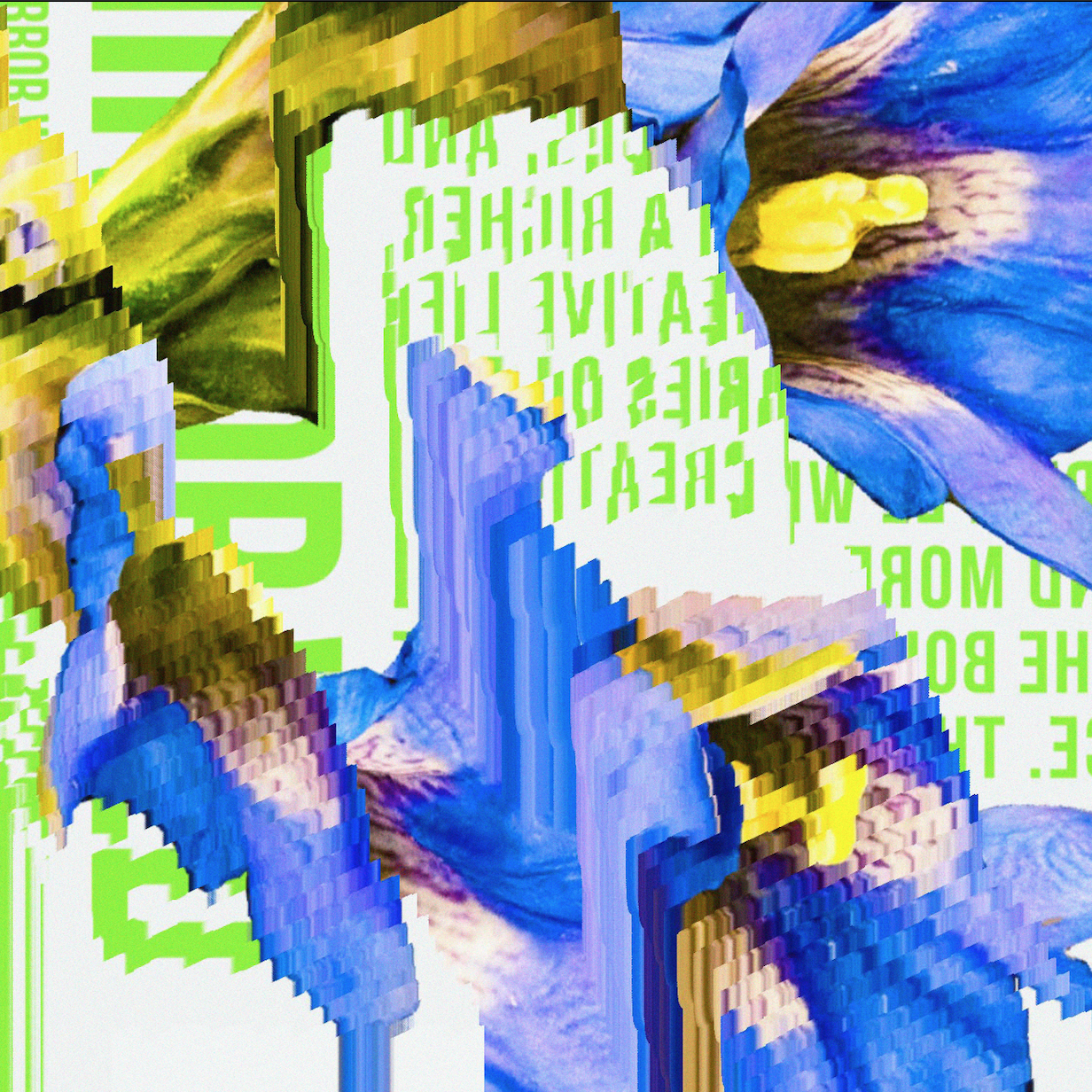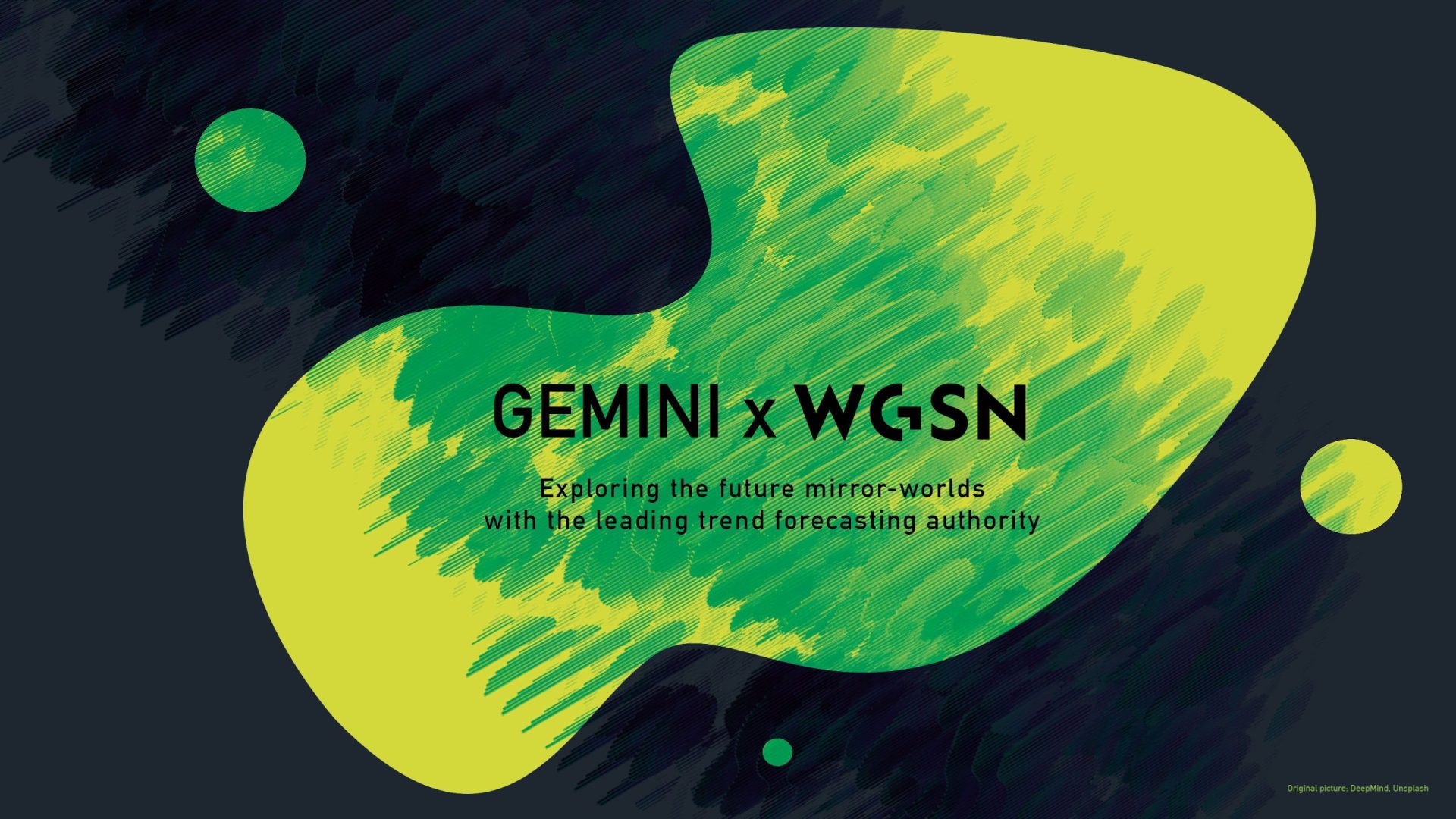While various technologies have made our lives more comfortable, it has also been pointed out that excessive use of digital tools and dependence on social media can negatively affect one’s mental health. Furthermore, as the spread of the Metaverse changes the boundaries between ourselves and others, as well as our perception of the world, the nature of well-being will also change with it. So how should we face digital technology? As a modern Buddhist monk, Shoukei Matsumoto, who has been exploring ideas around well-being with a view to the next generation from the perspective of Buddhist teachings, says that having a “voice” is more important now than ever.
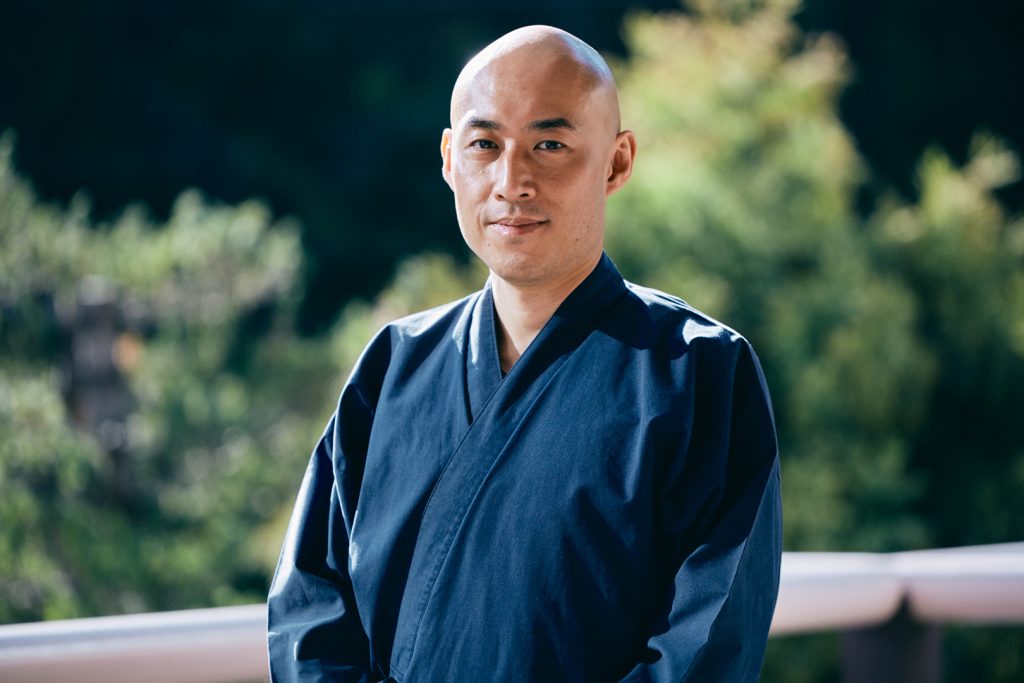
The “Chuudou (Middle Path)” to keep an appropriate distance from information
― In general, the word “monk” has an image that is far removed from technology, but you are actively using things like “note” and Twitter. Have you ever experienced the Metaverse or VR/AR yourself?
Matsumoto: I’m not that familiar with it myself, but I have experienced it at exhibitions and events. I was surprised that the quality has improved to the point where you can get the feeling of being immersed in that world. However, it’s not that I reject technology because I’m a monk who lives in a world of tradition, but instead, I’m trying to keep an appropriate distance from information because all of these technologies are constantly evolving.
― In recent years, it indeed seems that the importance of distancing oneself from information is being pointed out more and more, with things such as “digital detoxes” and whatnot.
Matsumoto: Twitter and other social media are designed to make you dependent on them, and if left unchecked, you become more and more immersed in that world. Even within Buddhism, one of the most important concepts is the “Chuudou (Middle Path)”, which refers to refraining from taking extreme positions. It’s often thought that this Middle Path is a half-hearted attitude, but it’s actually quite difficult to keep yourself attuned to your own path without being swayed too far toward one position or idea, and I think it’s a rather deep commitment to make as well.
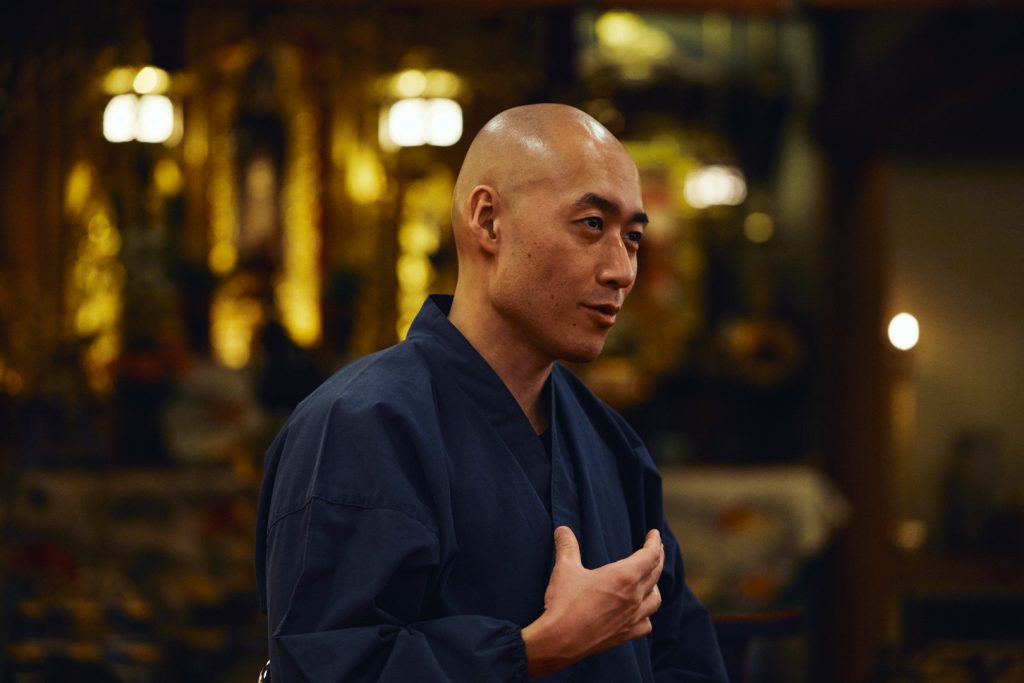
― In today’s world, we’re surrounded by an enormous amount of information, so the Middle Path may be an important attitude from the perspective of well-being.
Matsumoto: However, the Middle Path does not mean living a free existence disconnected from everything. A doctor Shinichiro Kumagaya said, “Independence means having many dependents.” In that sense, I believe that the attitude of the Middle Path is to search for one’s own center while connecting with many positions and wavering among them, and in this process well-being will emerge.
― You could say that the Metaverse, which allows you to switch avatars while going back and forth between multiple worlds, can lead to an increase in the number of dependents. Do you think that as you become able to create multiple selves, your way of being will also change?
Matsumoto: I think there are both good and bad influences. The writer Keiichiro Hirano advocated the concept of the “dividual”, and it could be said that even before the invention of the Metaverse we were not indivisible “individuals”, but instead living as “dividuals” who use different personalities depending on the time and situation.
However, I don’t think it’s that easy to change one’s way of being. For example, the modern Metaverse is designed entirely around visual information. Even if you can use many different avatars in the Metaverse, or create images that are so realistic that they can be mistaken for reality, if you close your eyes, you won’t be able to tell the difference between them.
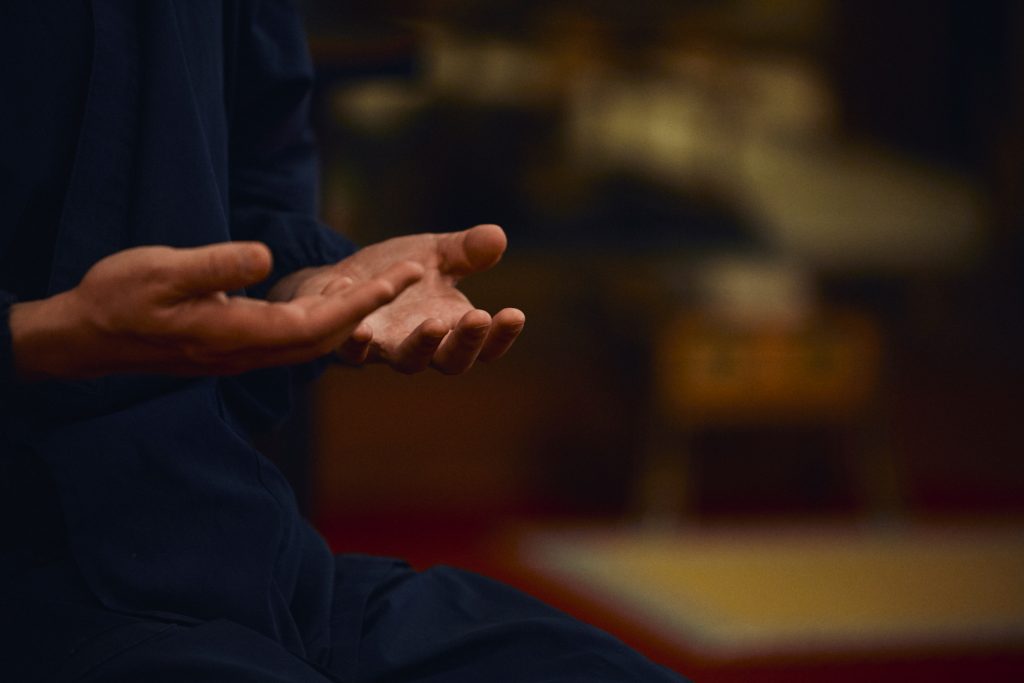
The Identity that dwells in a “voice”. Sound contains a wealth of information
― When considering the development of the Metaverse, it’s possible that the number of expressions and services that appeal to senses other than sight will increase in the future.
Matsumoto: Personally, I believe that the “voice” is where one’s identity resides. In the Metaverse, you can change your avatar, and in the real world you can change your appearance with makeup, but you can’t easily change your voice.
Voices are very interesting. I often hold one-on-one meetings with people from companies as an “industrial monk” who contracts with companies, sort of like an industrial doctor. I’m working with the data science team on a project to analyze voice emotions through AI. Voices contain a lot of information, as evidenced by studies that analyze the emotions of President Putin’s speeches and research that diagnoses diseases based on one’s voice. Rather than visual information that can be switched like avatars, voices may be the “individual” part of us.
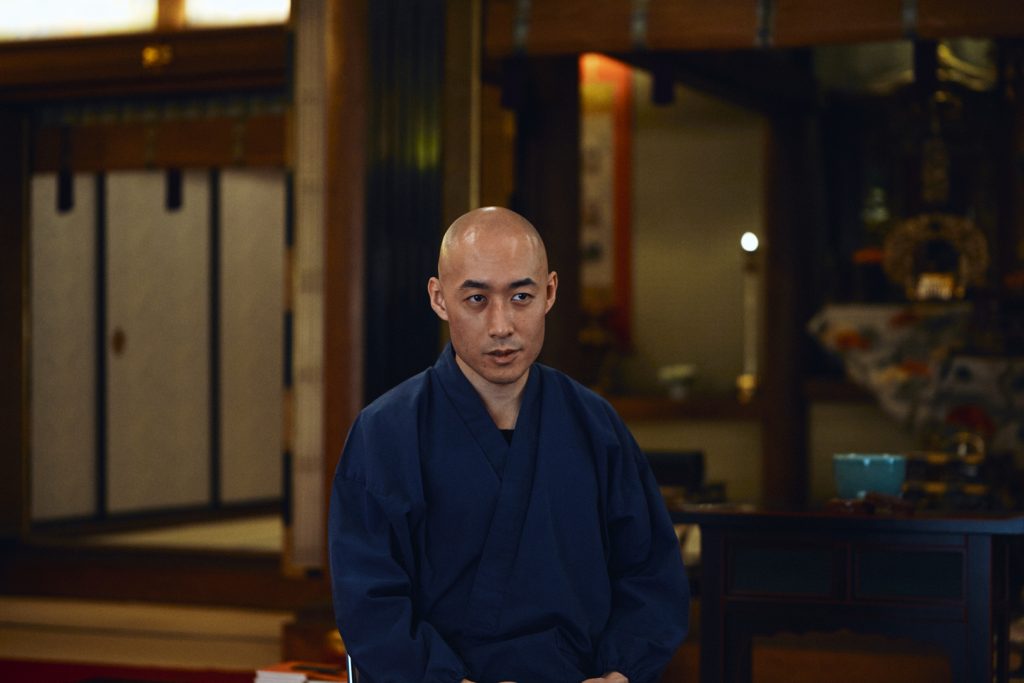
― It is interesting. When did you start paying attention to voices?
Matsumoto: I feel like the COVID-19 pandemic has strengthened my awareness. In the mornings, I have an initiative called “Temple Morning”, where we clean the temple, recite sutras, and have conversations. However, the pandemic has made it difficult to meet with people in person. But I didn’t feel like live-streaming what I’ve been doing up until now with video, so I thought it might be a good idea to stream it with audio only.
For example, if you show a video of someone reading a sutra, it will make you think of the main hall of the temple, but if you use only the sound without the image, it seems that you can create the feeling that a monk is there with you in your house.
― Your imagination is stimulated precisely because the visual information is blocked out.
Matsumoto: The Chinese characters for “Kannon” in Buddhism can be translated to mean “seeing” “sound”, too. To properly listen to one’s own voice and that of the other party is to be aware of their existence, and to resonate with each other. Of course, I’m not saying that the visual-dominant Metaverse is a bad thing in and of itself, just that we shouldn’t ignore the information and possibilities for interaction possibilities that sound provides.
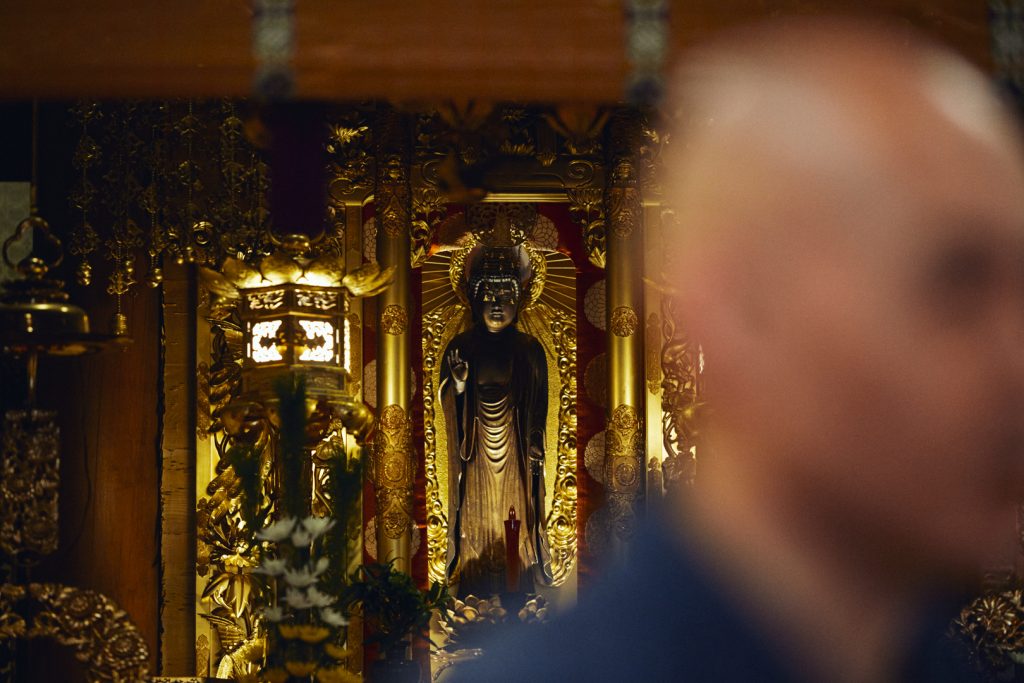
Well-being is dynamic
― I feel that your sense of distance from information and your sense of voice are deeply connected to modern well-being. How do you think we should attune our distance from information?
Matsumoto: When a concept like well-being appears, we tend to create new indicators and talk about high or low or good or bad based on those indicators. However, I think it’s meaningless to talk about things like certain points in time being good or bad in terms of snapshots. We need to look at things like well-being more dynamically.
For example, in the voice emotion analysis I mentioned earlier, emotions such as joy, sadness, and anger are analyzed from the voice, but I wouldn’t like it if there were people who only showed joyful emotions all of the time. If we try to create a company where all the employees are filled with joyful emotions all the time, we may end up with an organization that resembles a cult. It’s not that joy is good and sadness is bad. It’s that our lives, as well as our emotions, are constantly fluctuating, and it’s impossible to stay at one particular point.
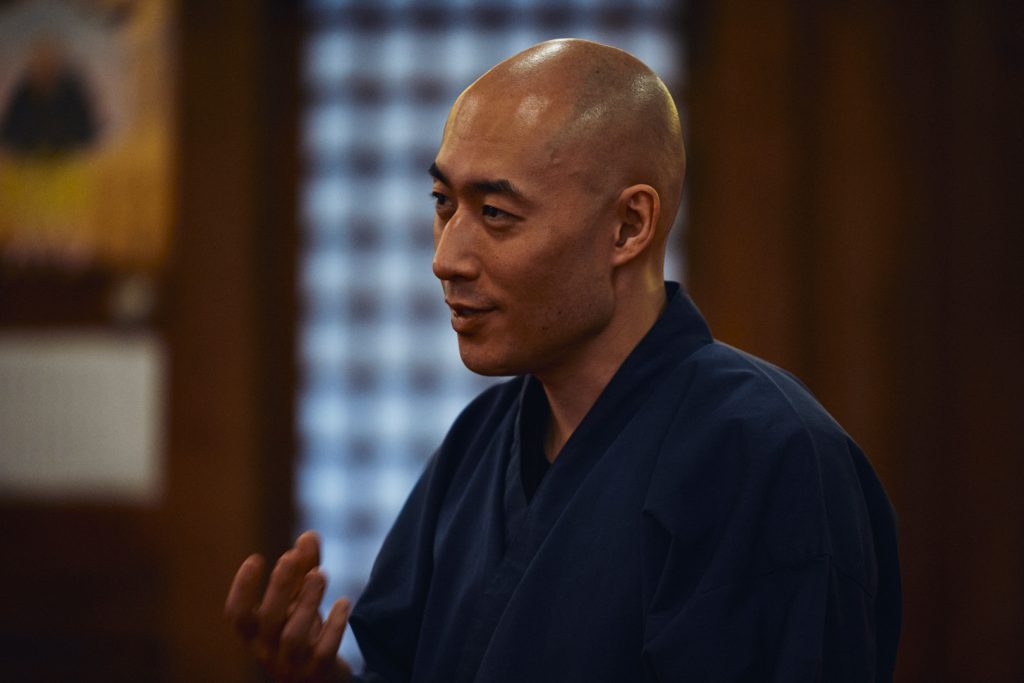
― In the Metaverse, instead of thinking that each avatar has its own different world, it might be better to think of them as being on a continuum somewhere.
Matsumoto: There’s a reason why sad feelings happen, so instead of trying to erase those sad feelings, it’s better to experience the process of getting there. However, social media such as Instagram creates pleasure by capturing moments in life as snapshots, and we have a habit of judging good or bad by looking at only one side of things. It can also be said that the wisdom to keep yourself from becoming a slave to this world of snapshots is important.
― If you think about it that way, your view of the past and the future will likely change.
Matsumoto: The past and the future exist on a continuum. I was invited to a conference called the “Dubai Future Forum” held in Dubai last year and had the opportunity to talk with people who are called “futurists” from all over the world. At that time, I also realized that I, a Buddhist monk, am also a futurist in a sense. Monks may seem to be more connected to the past than the future, but the future also rises from the continuity from the past, and there can be no future without properly accepting the past.
On the other hand, a book I translated last year called “The Good Ancestor”* was a book for thinking about how we should live now so that future generations will look back on us as “good ancestors”. By looking back at the past, we can see the future, and because we can see the future, we should be able to question our current way of living.
*“The Good Ancestor: How to Think Long Term in a Short-Term World”, written by Roman Krznaric, translated by Shoukei Matsumoto, published by Asunaro Shobo in September 2021

The important thing is to open yourself up to the unknown of this world
― In terms of continuity, what kind of things do you focus on?
Matsumoto: I think it’s important to look carefully at the “voices” that I talked about earlier. Avatars and the Metaverse may present a world where you can seemingly switch the continuity on and off, but there is always continuity in one’s voice, at least, and the existence of yourself appears in such continuity, wouldn’t you think?
Alternatively, I often climb mountains, and you could say that this is also a way of confirming one’s continuity. Living in the city makes us think that we live in a world where only humans exist, but in reality, we cannot live without the connections that we have to animals, plants, and nature.
― By broadening your horizons, you may be able to see connections and continuity that you usually don’t notice.
Matsumoto: In the Metaverse, you can do a lot of things that you can’t do in the real world, so you may have the illusion that you can create the world yourself. While you can’t control this world, I think it’s important to keep yourself open to the unknown. You have to develop a sensitivity that is open to surprises, the unknown, and the wonders of this world.
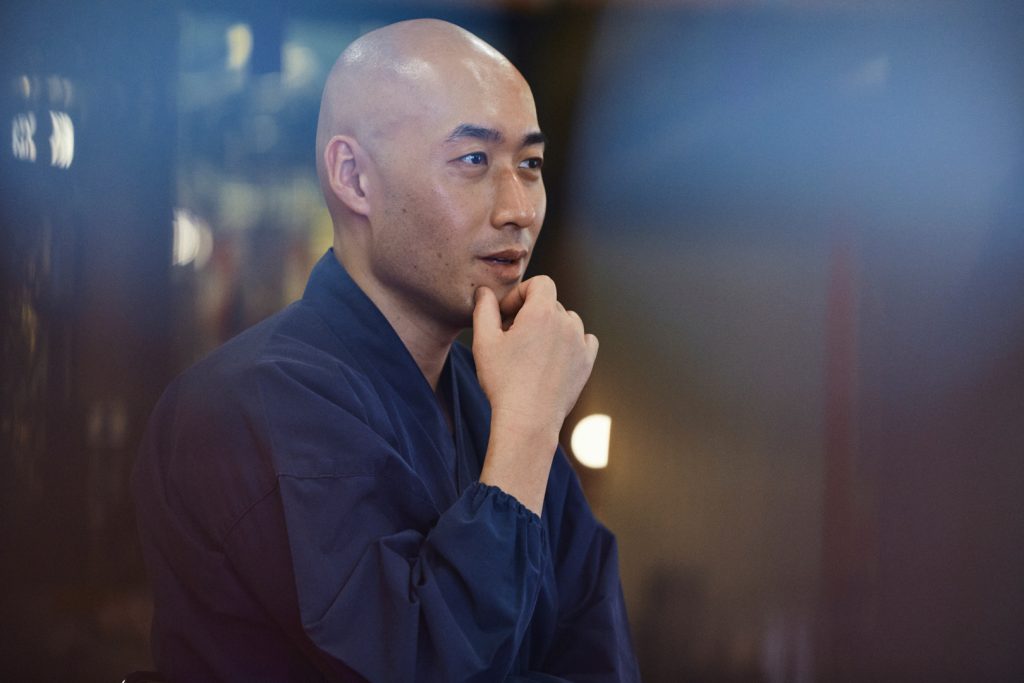
Possibilities seen in “greetings” for making each other’s voices resonate
― I get the impression that your point is not limited just to the Metaverse, but also applies to the problems of the modern society we live in today.
Matsumoto: Although the concept of well-being is attracting attention, I feel that the number of situations where people are “losing their sanity” is increasing worldwide. It’s as if we’re collectively strangling ourselves. This is especially true in Japan, where working hours are long, but productivity is not high, so you can’t say there’s a high level of well-being here.
In addition to Buddhism and Shintoism, I think that in Japan, the religions of “patience” and “struggle” are deeply rooted in people’s minds. There are so many people who are burdened with these things that they “have to do”, as if they’re not allowed to exist unless they’re constantly working. As a result, even though you don’t want to, you may end up dragging each other down. As an industrial monk, what I get from talking to people from these different companies is that there are a lot of people who have lost sight of their own voices. In order to relieve this rigidity, it seems necessary to listen to your own voice.
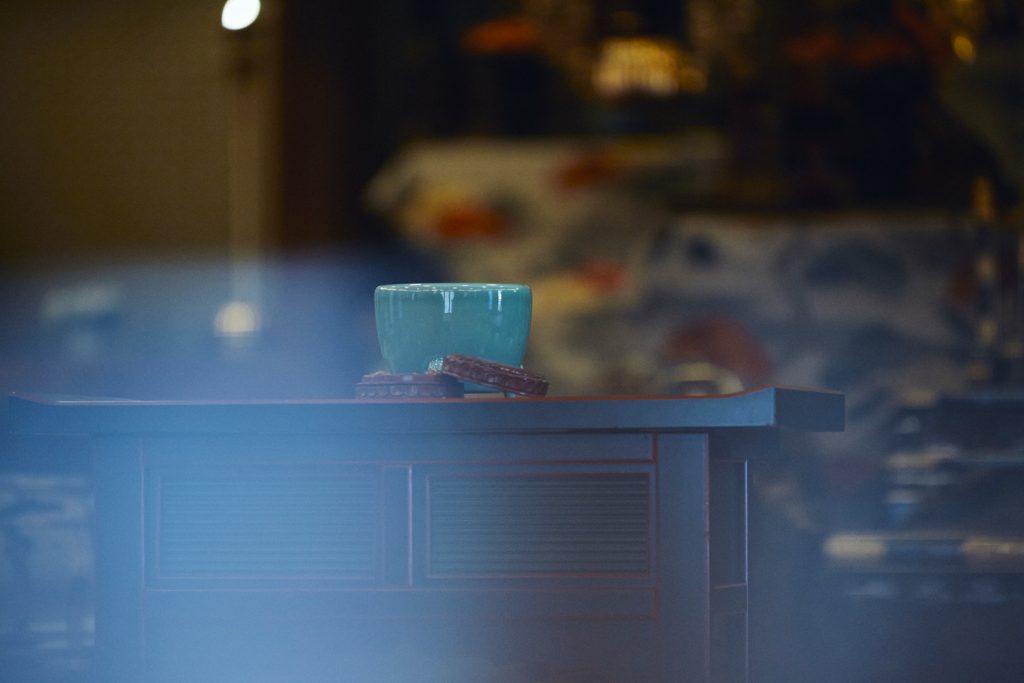
― It’s true that in modern society, it’s possible to find yourself in a situation where you lose sight of who you are. So how can we learn to listen to ourselves?
Matsumoto: I’ve been paying more attention to “greetings” lately. The Japanese word for greeting, “aisatsu”, is actually a Buddhist term. When ascetic monks and masters greet each other by saying “good morning”, they gauge each other’s enlightenment levels, echo each other’s voices, and create polyphony to elevate one another.
While there are all sorts of greetings in the world, like “good morning” or “hello”, the words themselves contain almost no linguistic information. We’ve always acknowledged each other by making sounds that transcend space and time. The Metaverse not only enriches the image quality and movement, but also creates opportunities to feel the presence of other people by greeting each other, which can in turn lead to improved well-being.
Guest Profile
-
Shoukei Matsumoto
Shoukei Matsumoto
Shoukei MATSUMOTO Is Ancestorist, Buddhist Monk. He Graduated With B.A. Degree In Literature From The University Of Tokyo. He Completed MBA From Indian School Of Business As An Ambassadorial Scholar Of Rotary Foundation In 2011. He Is Visiting Professor Of Musashino University. He Started A Project Of “Mirai No Jushoku-Juku” Or Temple Management School For Buddhist Priests And Monks. In 2013, He Was Nominated As A Member Of Young Global Leaders From World Economic Forum. He Has Published Five Titles And "A Monk's Guide To A Clean House And Mind” Was Translated Into More Than Fifteen Languages. He Has Also Translated "The Good Ancestor: How To Think Long Term In A Short-Term World" Written By Roman Krznaric Into Japanese.
Co-created by
-
Shunta Ishigami
Writer
Shunta Ishigami
Writer
Born In 1989. After Graduating From The University Of Tokyo, Worked At An Advertising Production Company Before Joining The Japanese Editorial Department Of WIRED. In 2017, He Became Independent And Was Involved In Editing Various Magazines And Web Media Such As STUDIO VOICE, VOGUE Japanese Version, BRUTUS And Quick Japan, And Founded MOTE In 2019. His Main Fields Are Asian Youth Culture, Architecture, Cities, And Tech, And He Is Engaged In Corporate Content Creation And Research.
- MOTE: https://motesl.im/
-
Shigeta Kobayashi
Photographer
Shigeta Kobayashi
Photographer
Born In Niigata, Japan In 1985, Photographer. Focusing On The Layering Of Human Physical Actions And Flows In Nature, He Creates Photographic Works By Treating The Materials He Photographs As Fragments Of These Layers.
- Shigeta Kobayashi Photographs: http://www.shigetakobayashi.com/
Tag
Share
Discussion
Index
Index
Archives
Recommend
Recommend
Recommend
Recommend
Recommend
-

{ Prototype }
GEMINI Laboratory GLOBAL DESIGN AWARDS WINNERS ANNOUNCEMENT
GEMINI Laboratory GLOBAL DESIGN AWARDS WINNERS ANNOUNCEMENT
GEMINI Laboratory GLOBAL DESIGN AWARDS WINNERS ANNOUNCEMENT
-

{ Community }
Announcing Special Workshop with Architect Andrew Kovacs: SUPEROBJECTS
Announcing Special Workshop with Architect Andrew Kovacs: SUPEROBJECTS
Announcing Special Workshop with Architect Andrew Kovacs: SUPEROBJECTS
-

{ Community }
Working In The Metaverse
Working In The Metaverse
Working In The Metaverse
-

{ Prototype }
Fracture Born From The Fusion Of The Virtual And The Physical ── Sunaki “GEMINI EXHIBITION: Debug Scene” Artist Interview 03
Fracture Born From The Fusion Of The Virtual And The Physical ── Sunaki “GEMINI EXHIBITION: Debug Scene” Artist Interview 03
Fracture Born From The Fusion Of The Virtual And The Physical ── Sunaki “GEMINI EXHIBITION: Debug Scene” Artist Interview 03
-

{ Community }
DOMMUNE’s Naohiro Ukawa Talks About The Metaverse As The Third Summer Of Love Theory. How Will Experience Evolve In Virtual Space?
DOMMUNE’s Naohiro Ukawa Talks About The Metaverse As The Third Summer Of Love Theory. How Will Experience Evolve In Virtual Space?
DOMMUNE’s Naohiro Ukawa Talks About The Metaverse As The Third Summer Of Love Theory. How Will Experience Evolve In Virtual Space?
Hot topics
Hot topics
Hot topics
Hot topics
Hot topics
-

{ Prototype }
GEMINI Laboratory GLOBAL DESIGN AWARDS WINNERS ANNOUNCEMENT
GEMINI Laboratory GLOBAL DESIGN AWARDS WINNERS ANNOUNCEMENT
GEMINI Laboratory GLOBAL DESIGN AWARDS WINNERS ANNOUNCEMENT
-

{ Community }
Scenting the metaverse with olfactory futurist, Olivia Jezler
Scenting the metaverse with olfactory futurist, Olivia Jezler
Scenting the metaverse with olfactory futurist, Olivia Jezler
-

{ Community }
Architect Mark Foster Gage: Kitbashing opens up design possibilities
Architect Mark Foster Gage: Kitbashing opens up design possibilities
Architect Mark Foster Gage: Kitbashing opens up design possibilities
-

{ Community }
Fashion Historian Pamela Golban: Beyond the Fusion of Virtual and Physical
Fashion Historian Pamela Golban: Beyond the Fusion of Virtual and Physical
Fashion Historian Pamela Golban: Beyond the Fusion of Virtual and Physical
-

{ Community }
Ars Electronica’s Hideaki Ogawa on the Happy Relationship between Media Art and the City
Ars Electronica’s Hideaki Ogawa on the Happy Relationship between Media Art and the City
Ars Electronica’s Hideaki Ogawa on the Happy Relationship between Media Art and the City
-

{ Community }
Unlocking New Worlds: How Gaming is Leading Southeast Asia’s Journey into Web3
Unlocking New Worlds: How Gaming is Leading Southeast Asia’s Journey into Web3
Unlocking New Worlds: How Gaming is Leading Southeast Asia’s Journey into Web3
-

{ Community }
Tomihiro Kono, who also designs wigs for Björk, explores multiple areas of creativity, including 2D, 3D, and AR
Tomihiro Kono, who also designs wigs for Björk, explores multiple areas of creativity, including 2D, 3D, and AR
Tomihiro Kono, who also designs wigs for Björk, explores multiple areas of creativity, including 2D, 3D, and AR
Special
Special
Special
Special
Special
Featured articles spun from unique perspectives.
What Is
“mirror world”...
What Is
“mirror world”...
What Is
“mirror world”...
What Is
“mirror world”...
What Is
“mirror world”...
“mirror world”... What Is
“mirror world”... What Is
“mirror world”... What Is
“mirror world”... What Is
“mirror world”...
Go Down
Go Down
Go Down
Go Down
Go Down
The Rabbit
The Rabbit
The Rabbit
The Rabbit
The Rabbit
Hole!
Hole!
Hole!
Hole!
Hole!
Welcome To Wonderland! Would You Like To Participate In PROJECT GEMINI?

